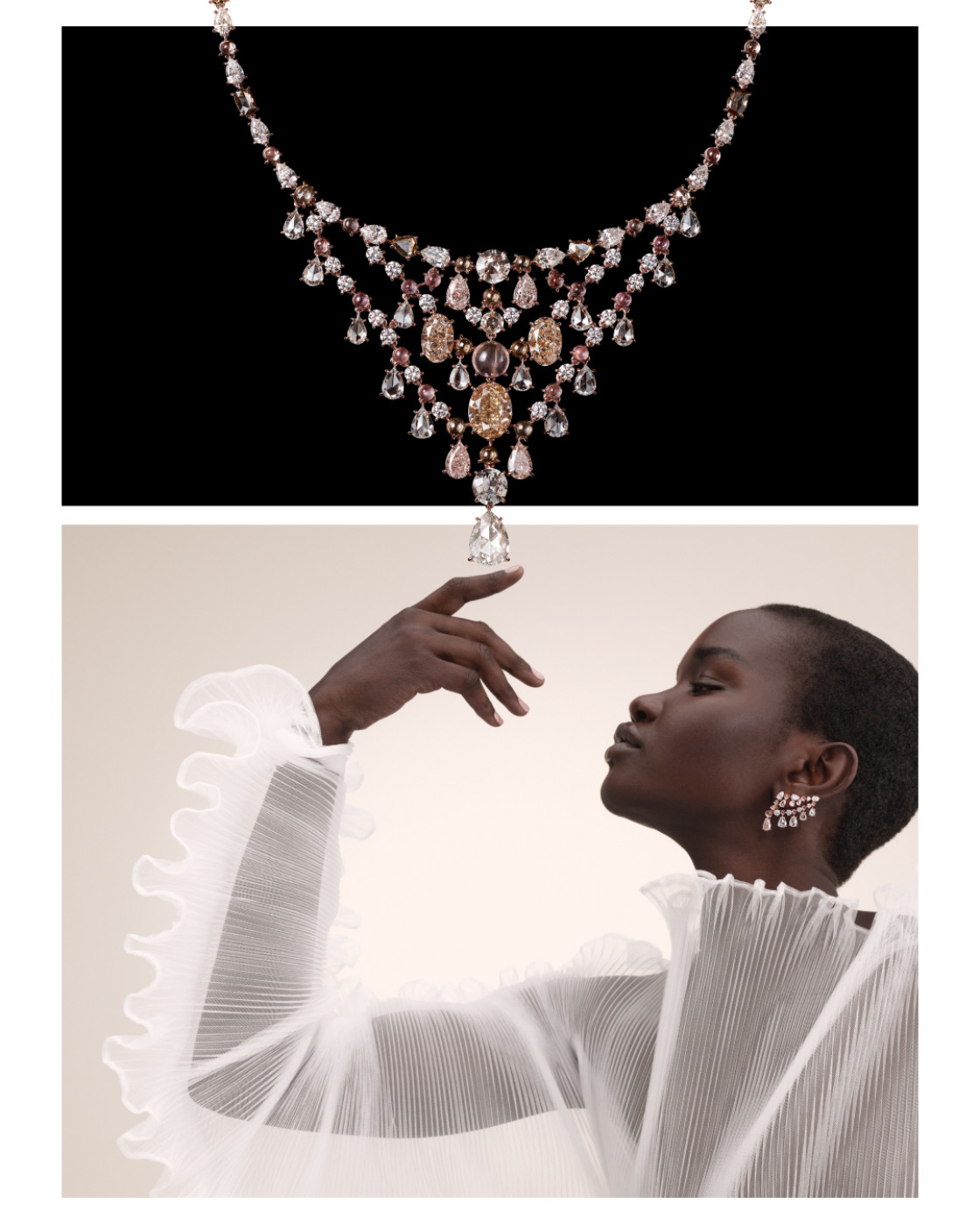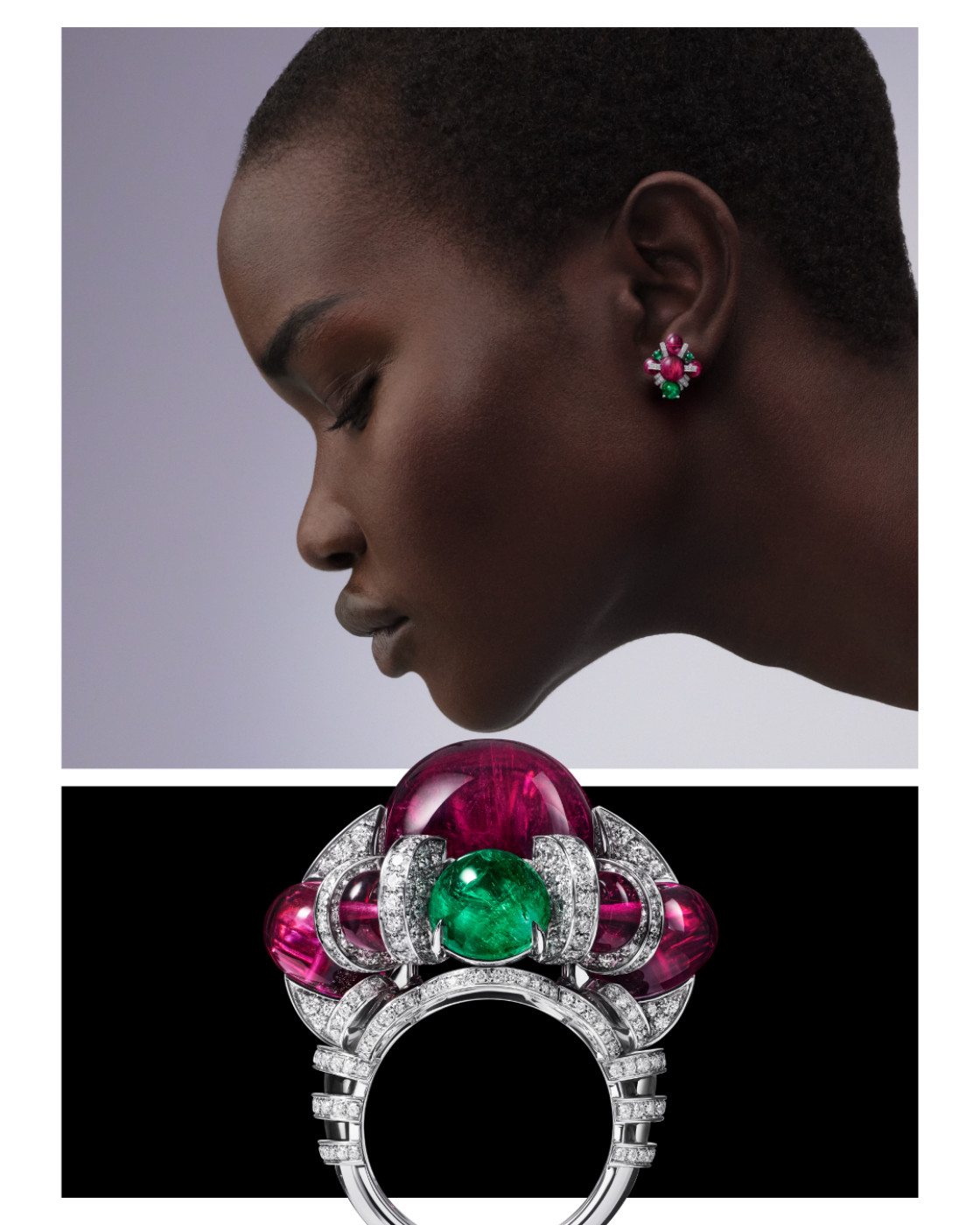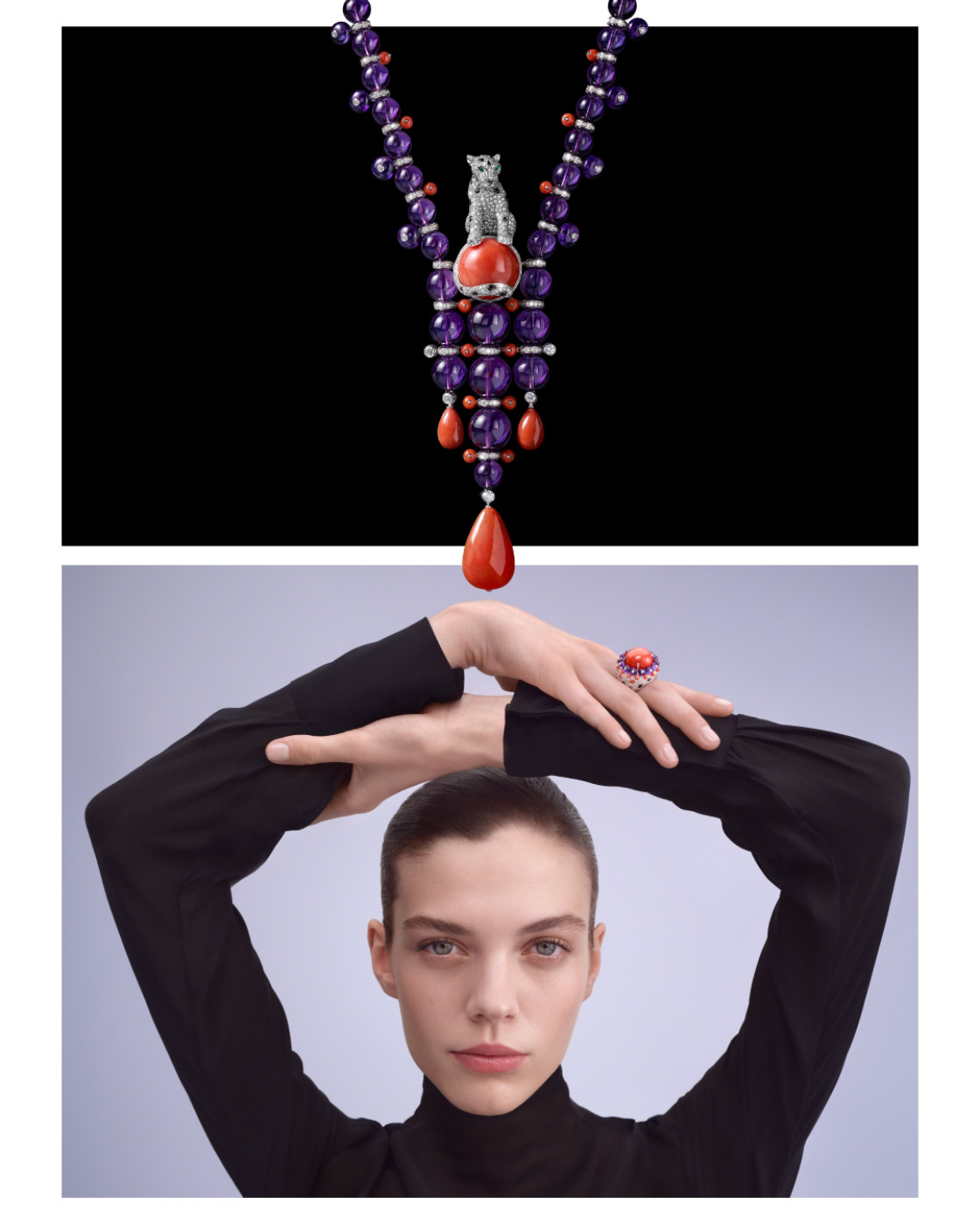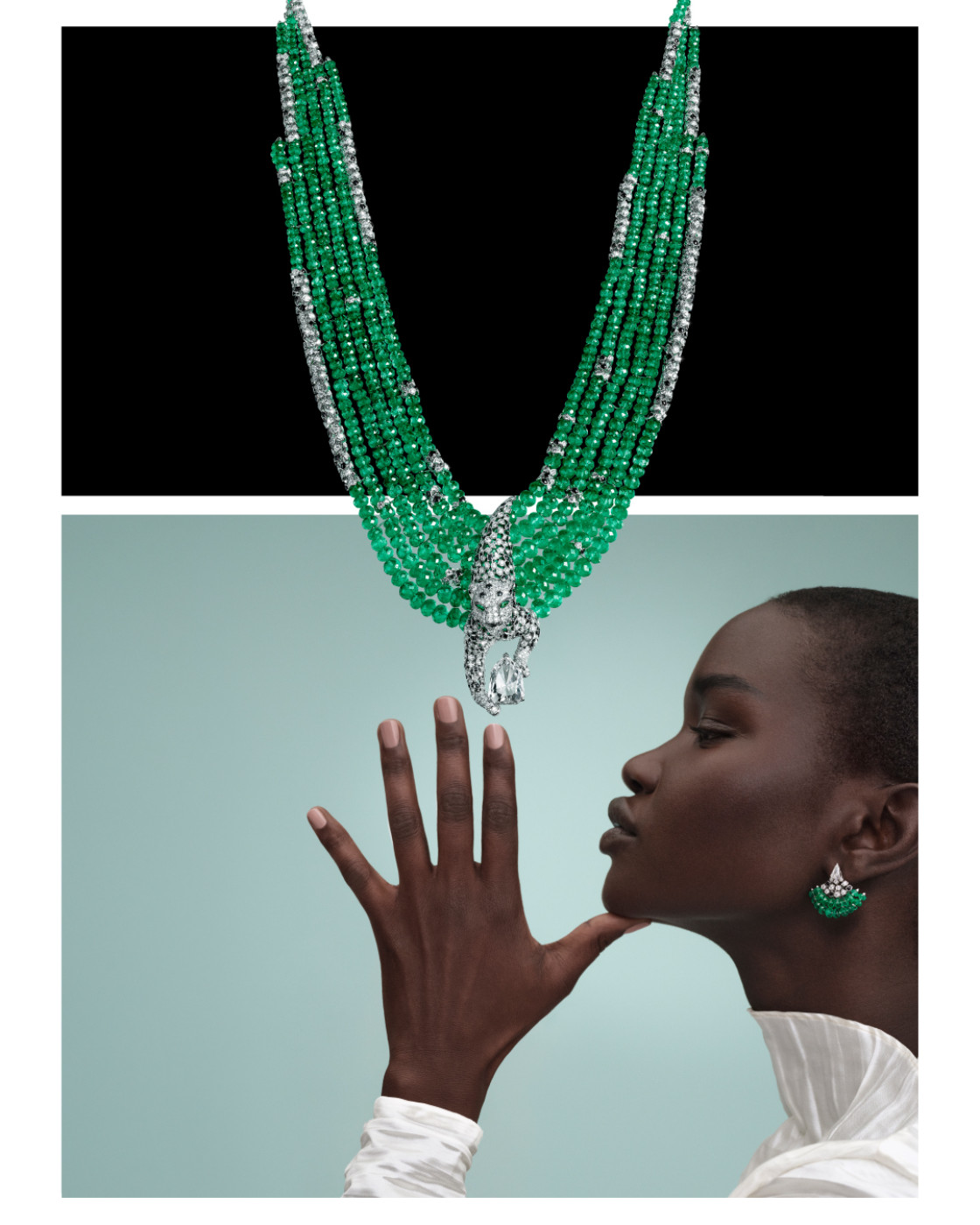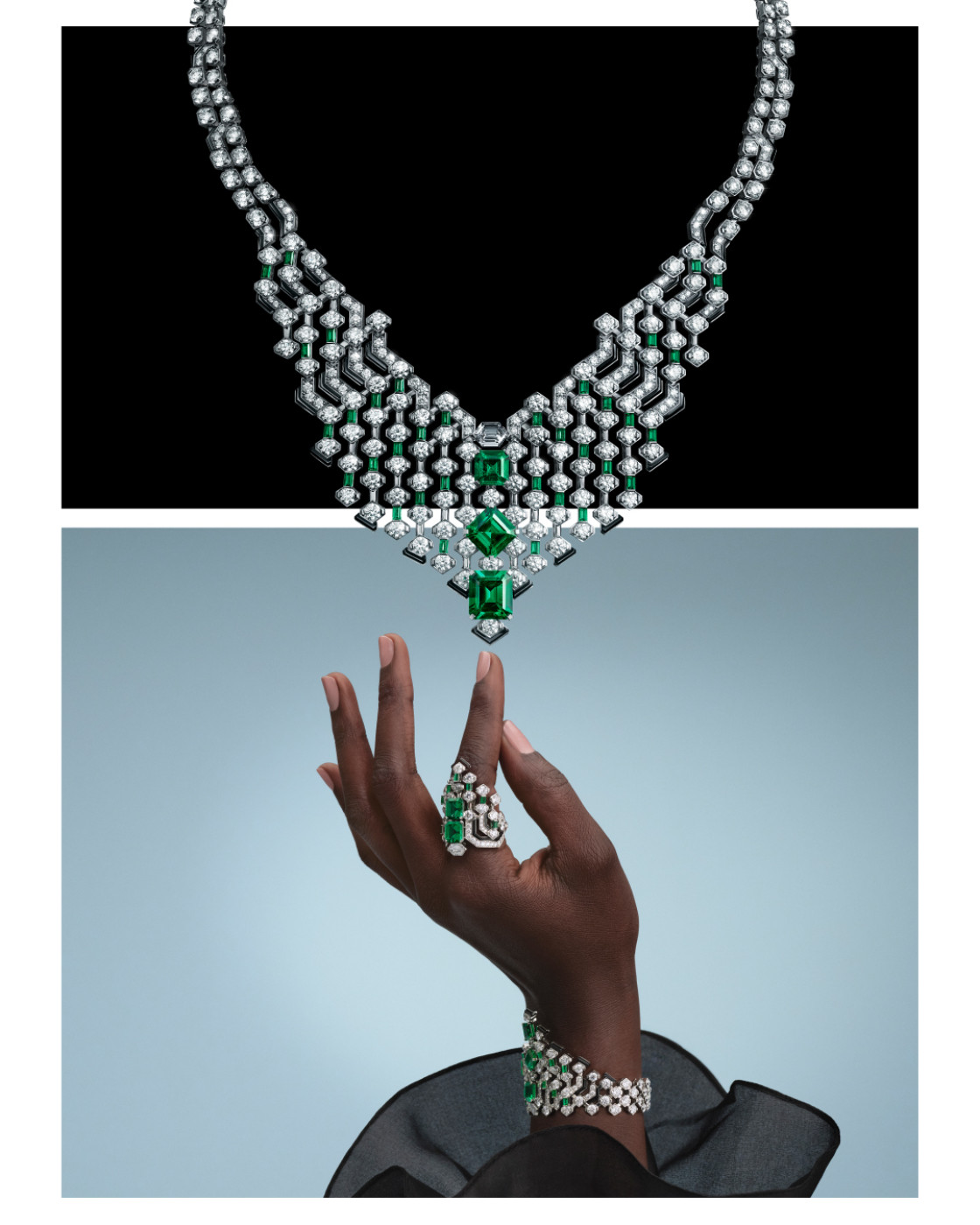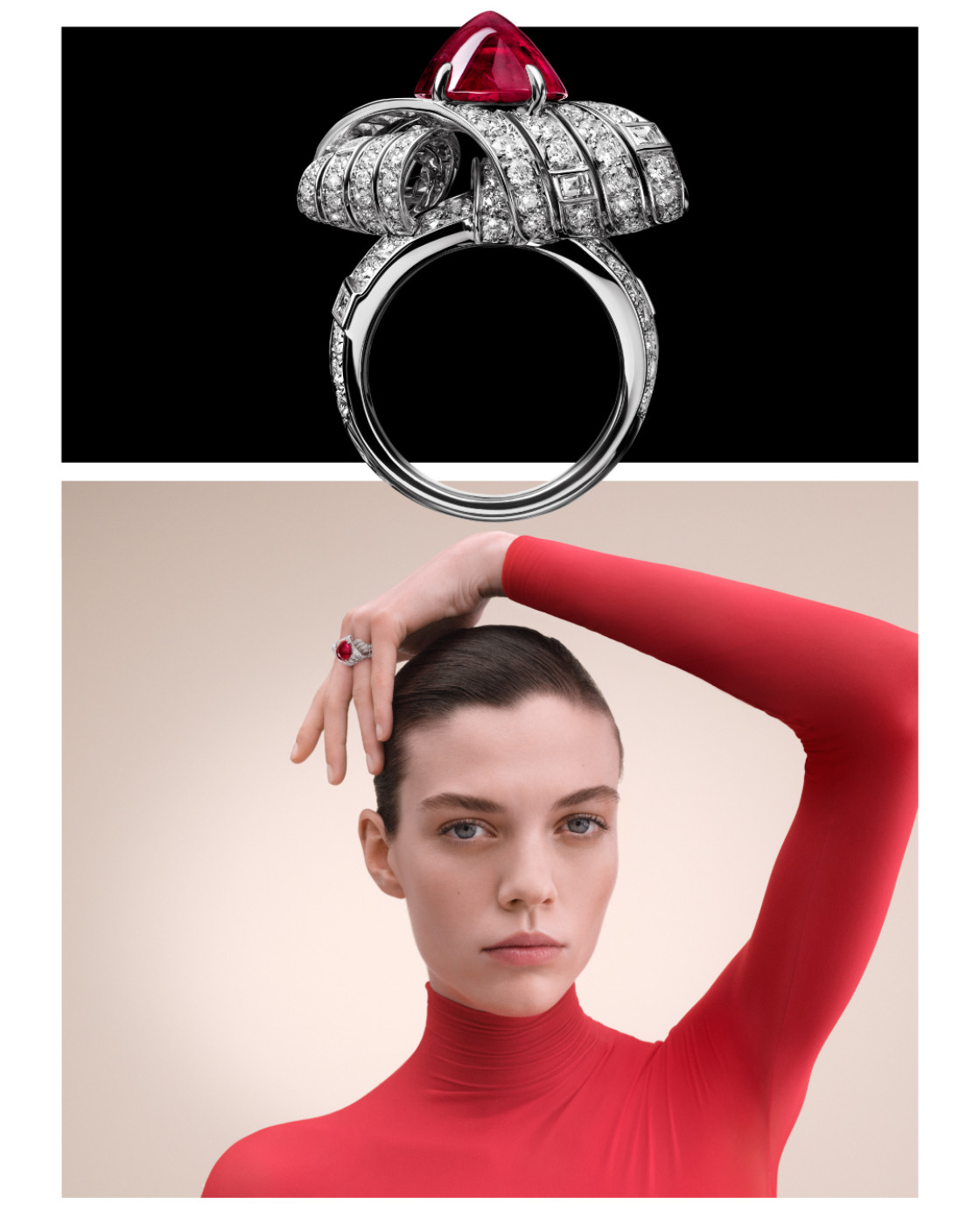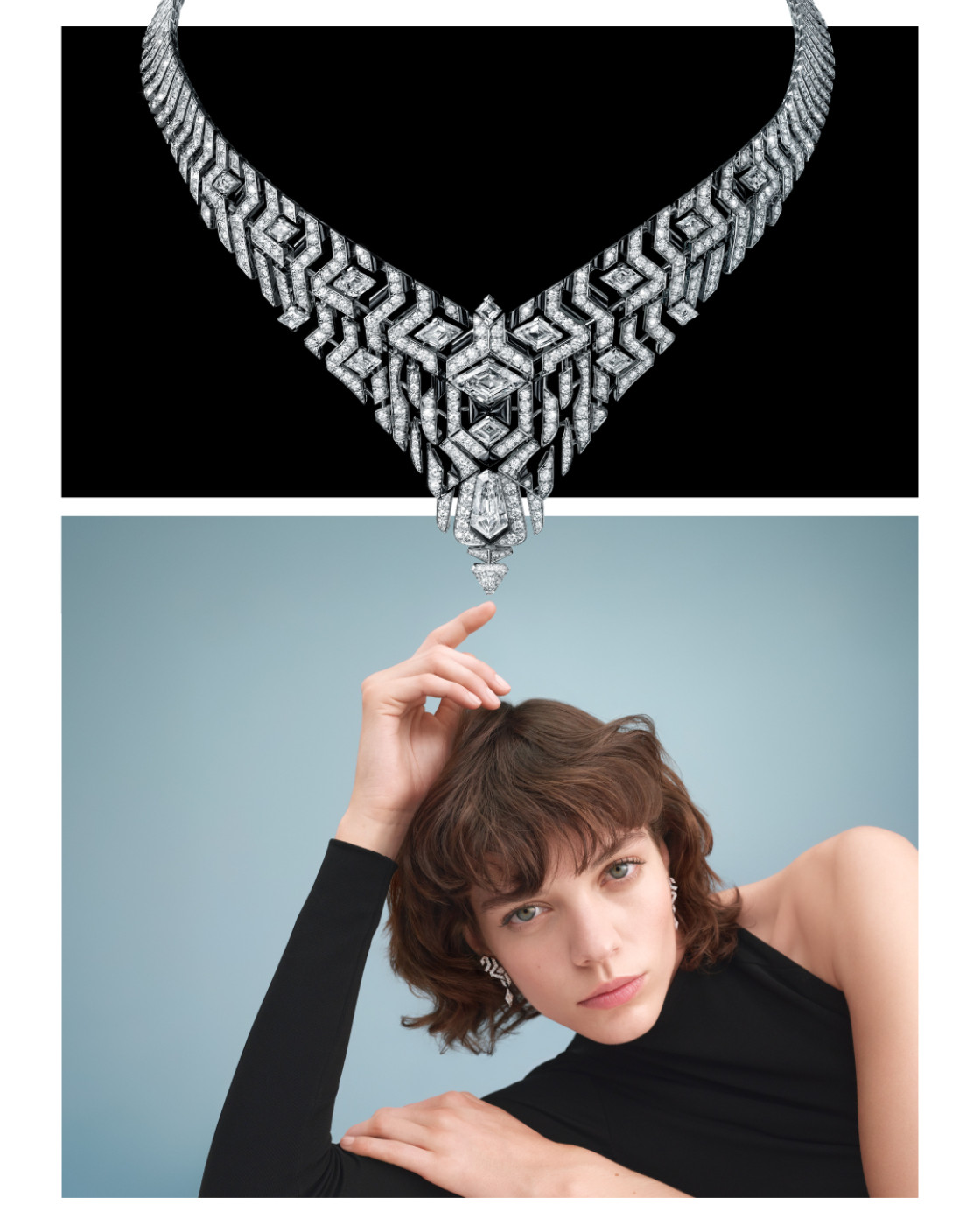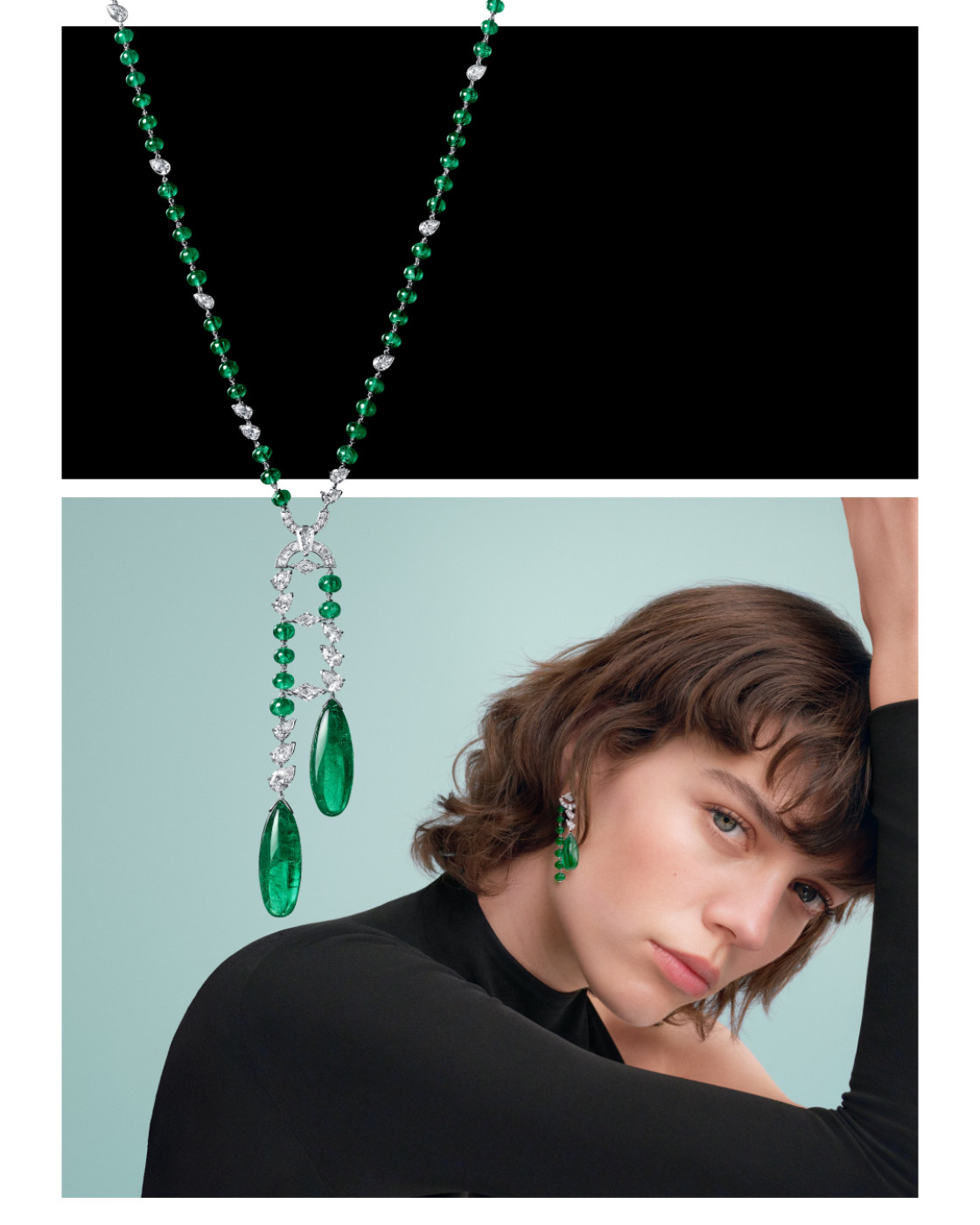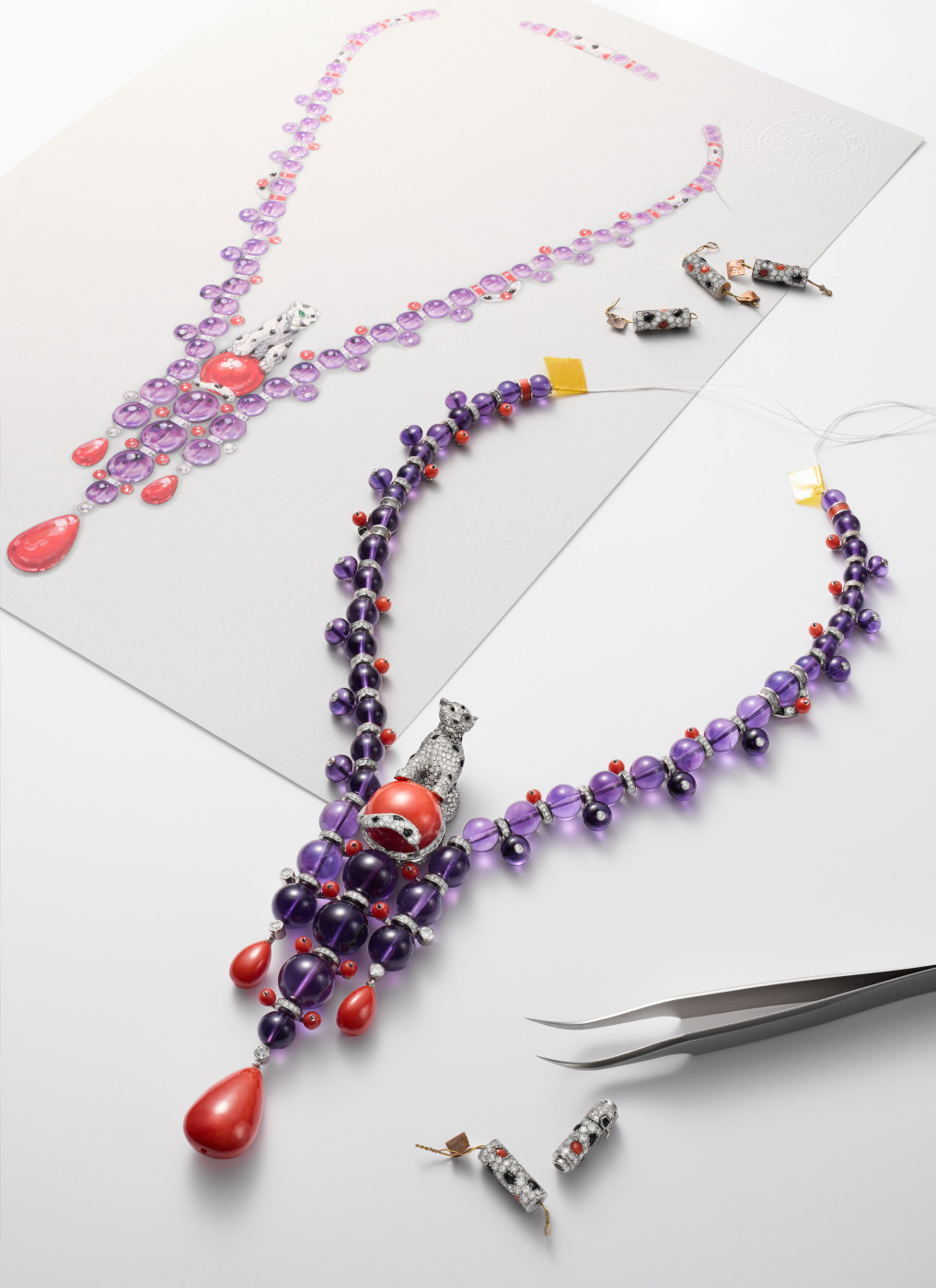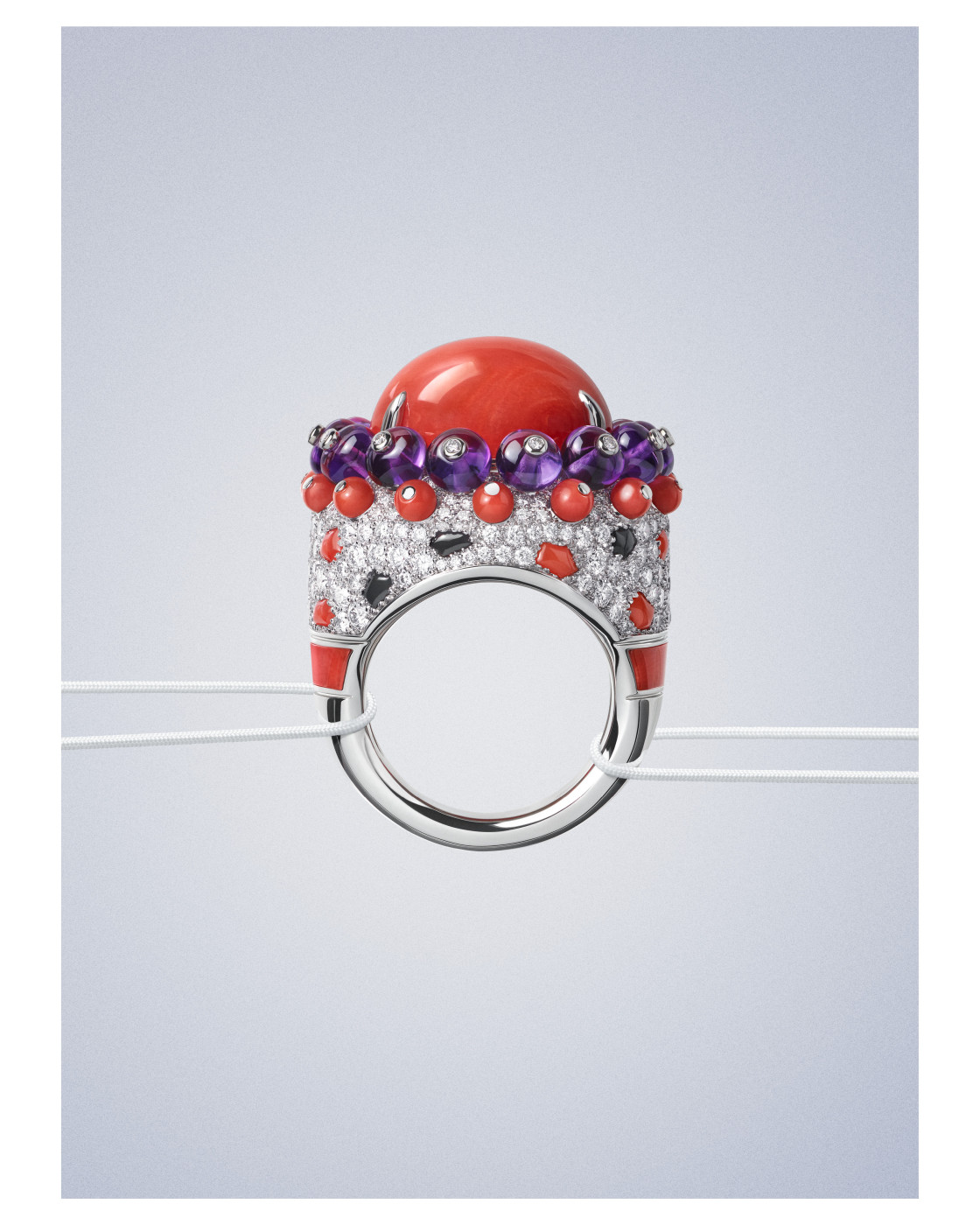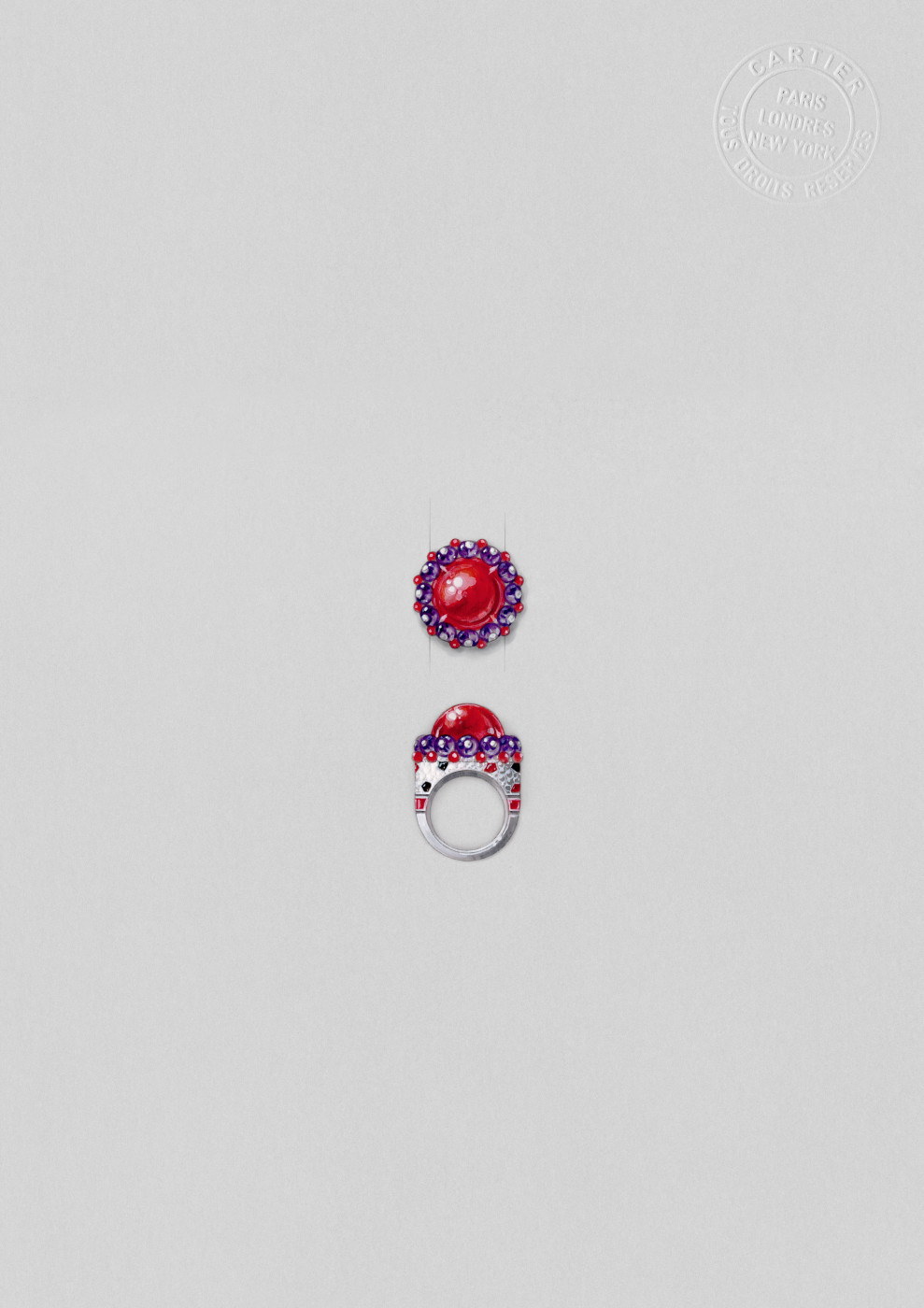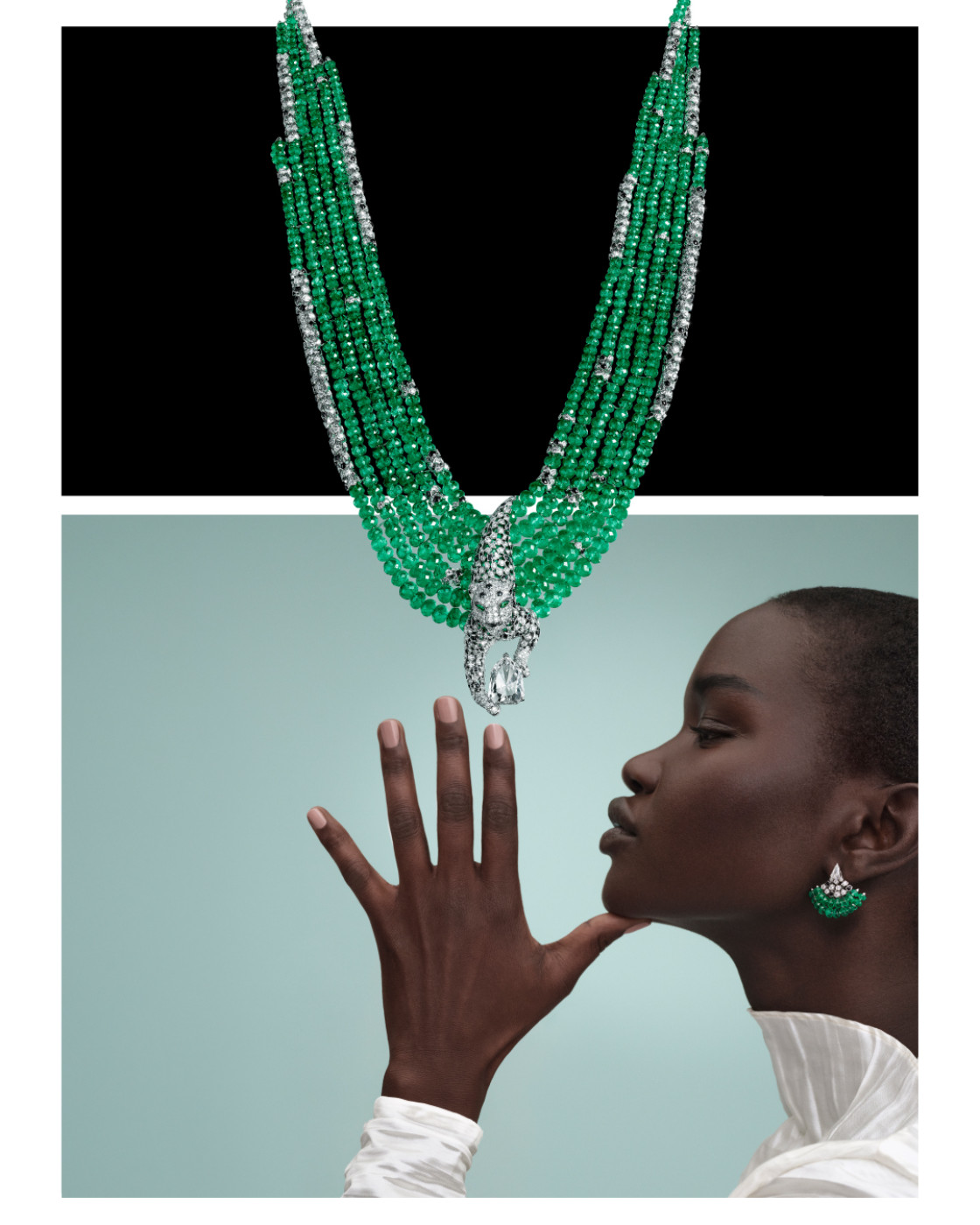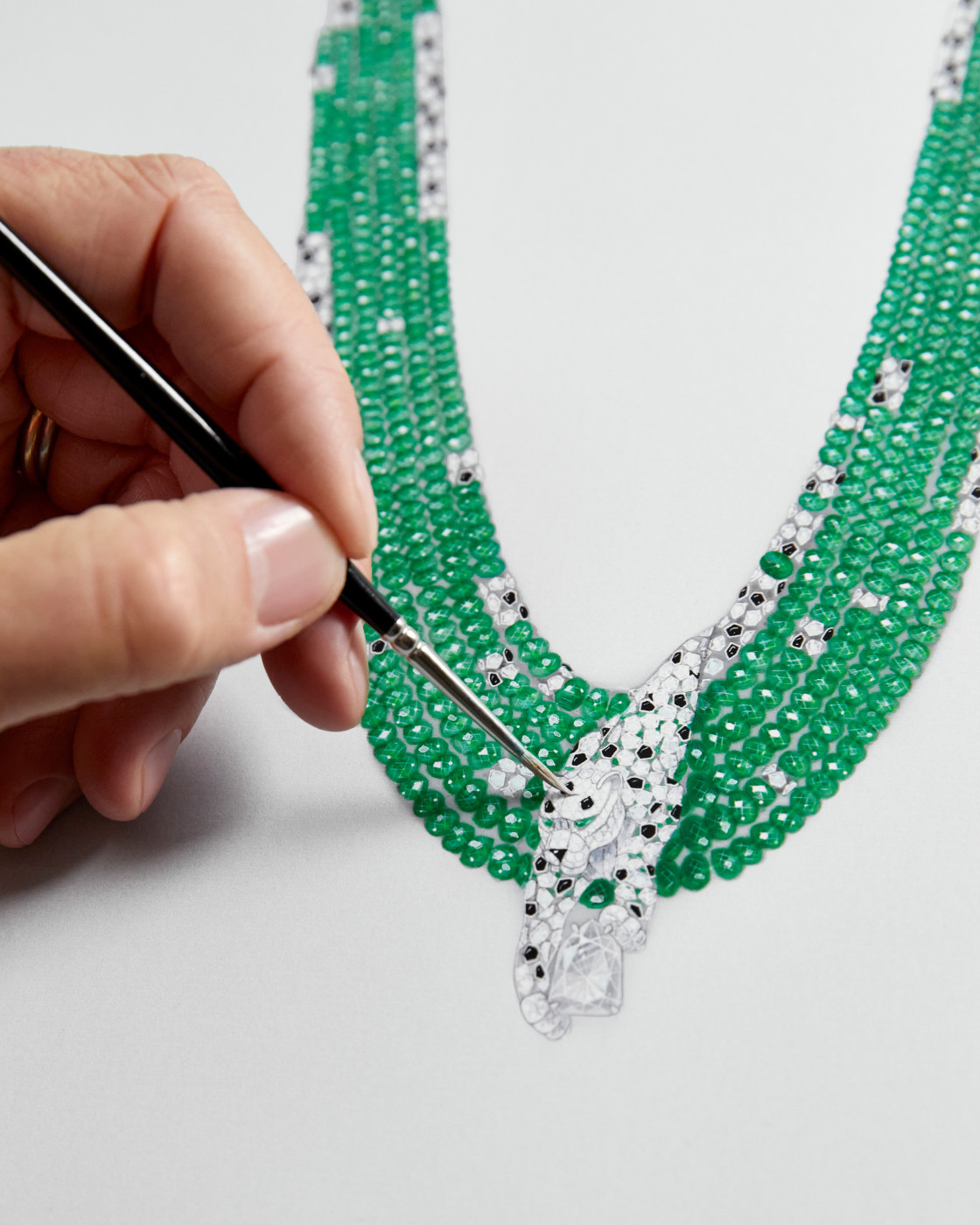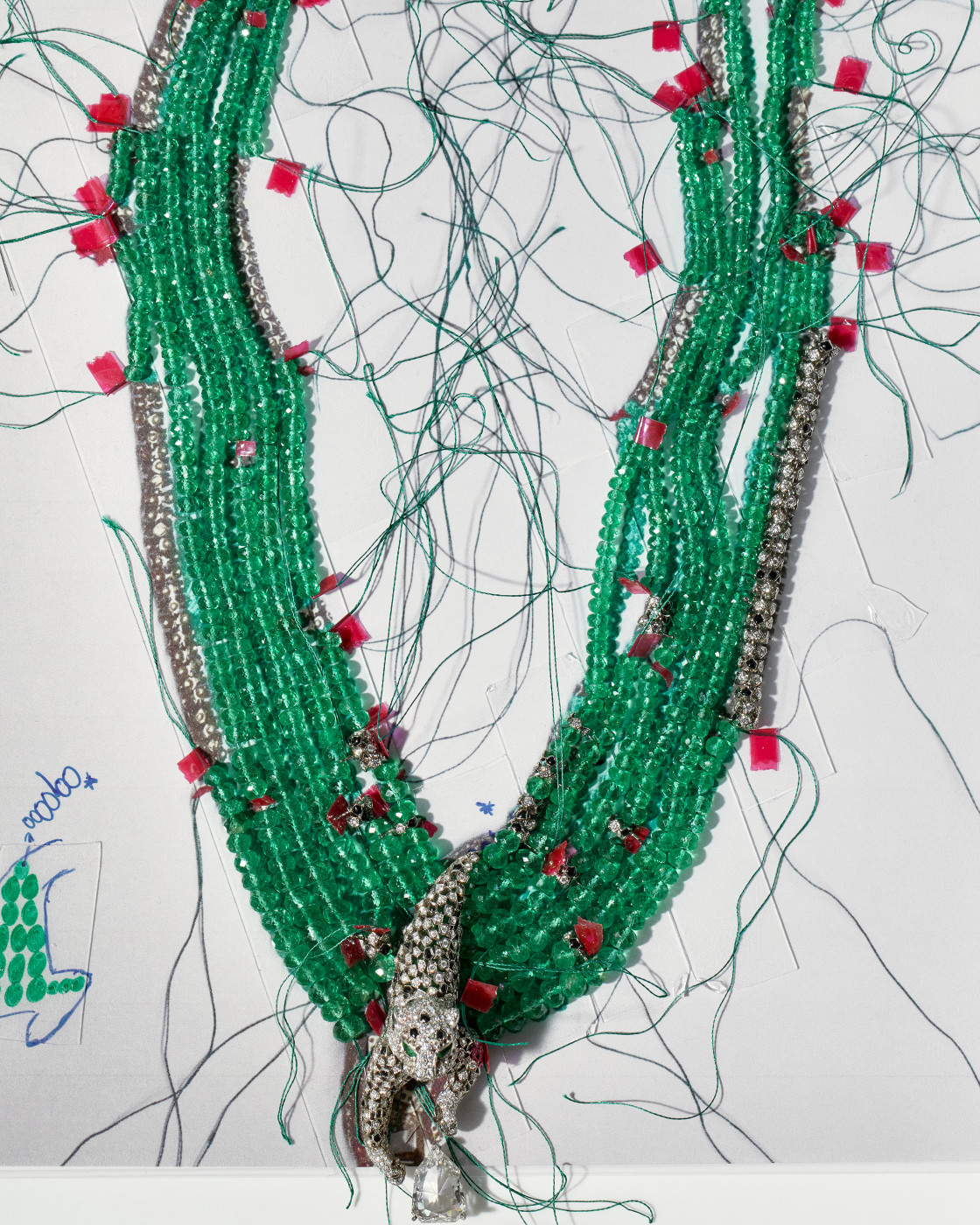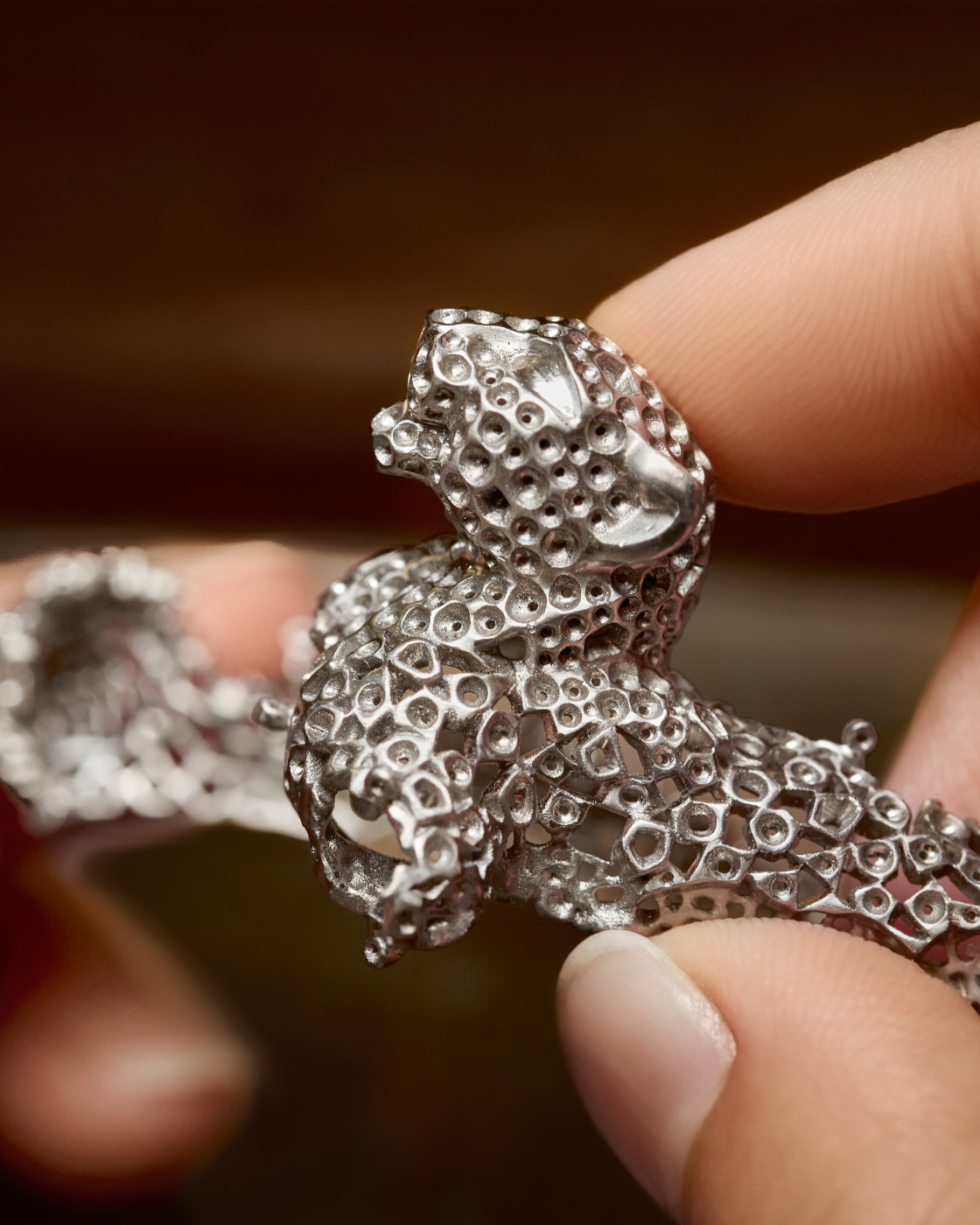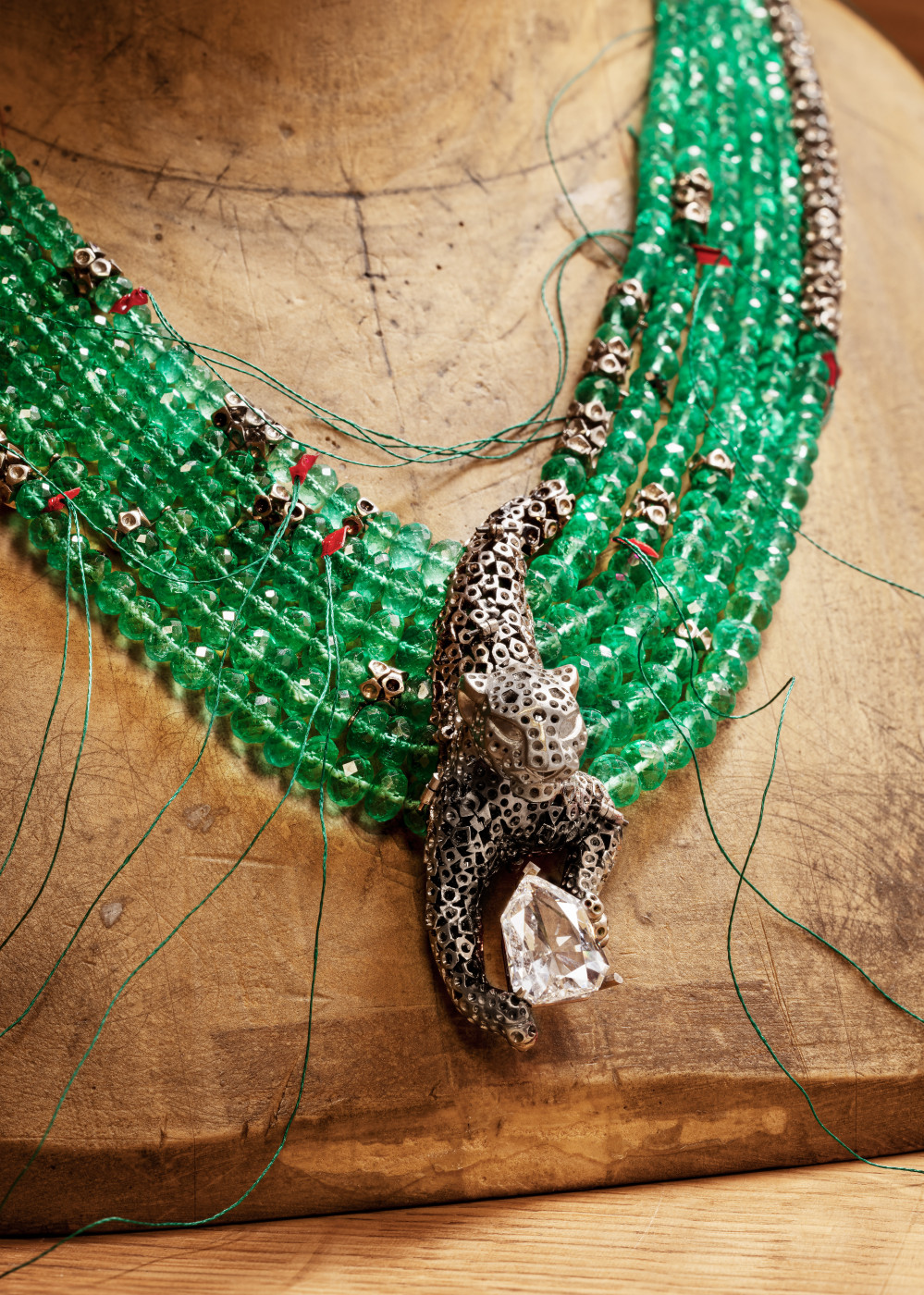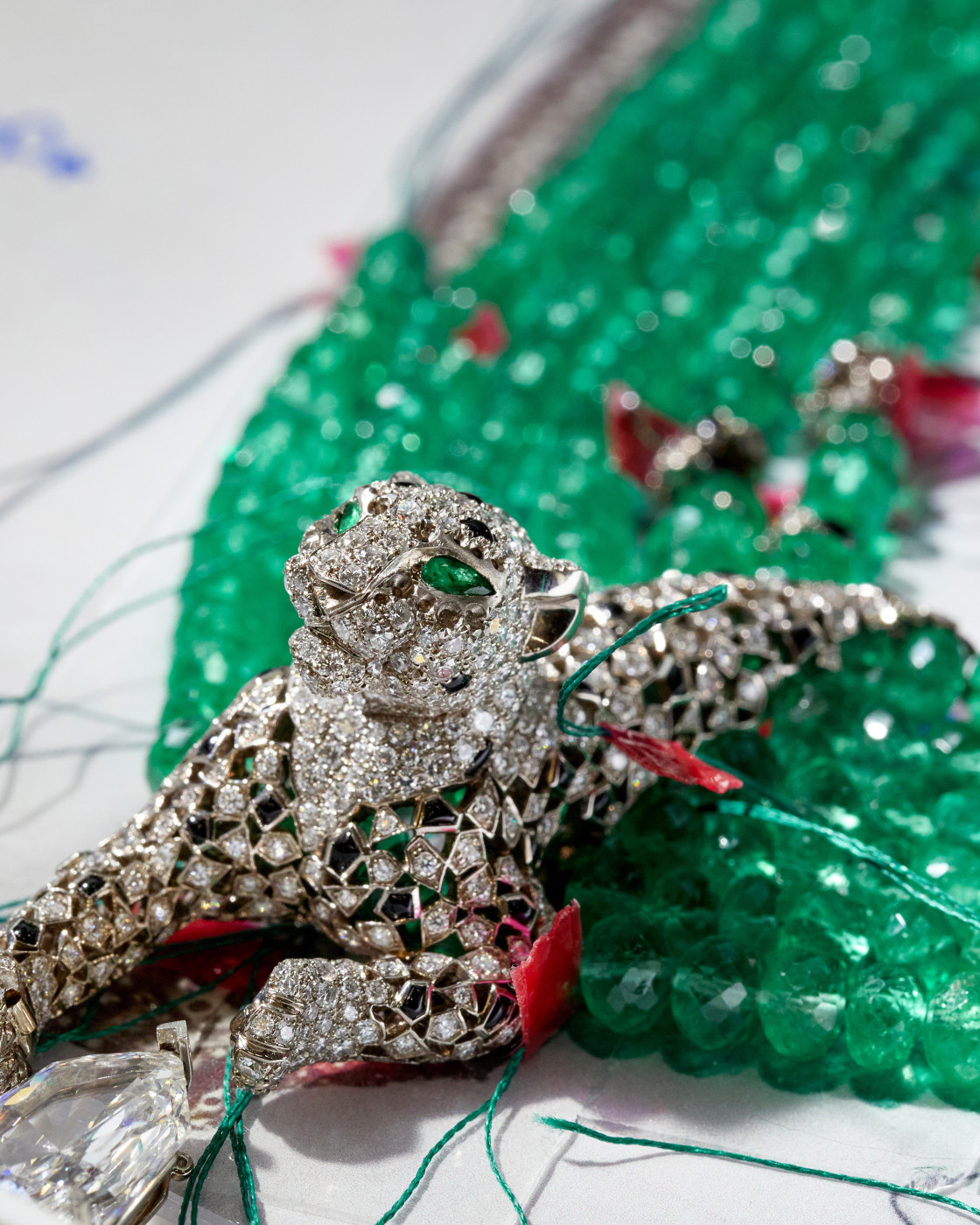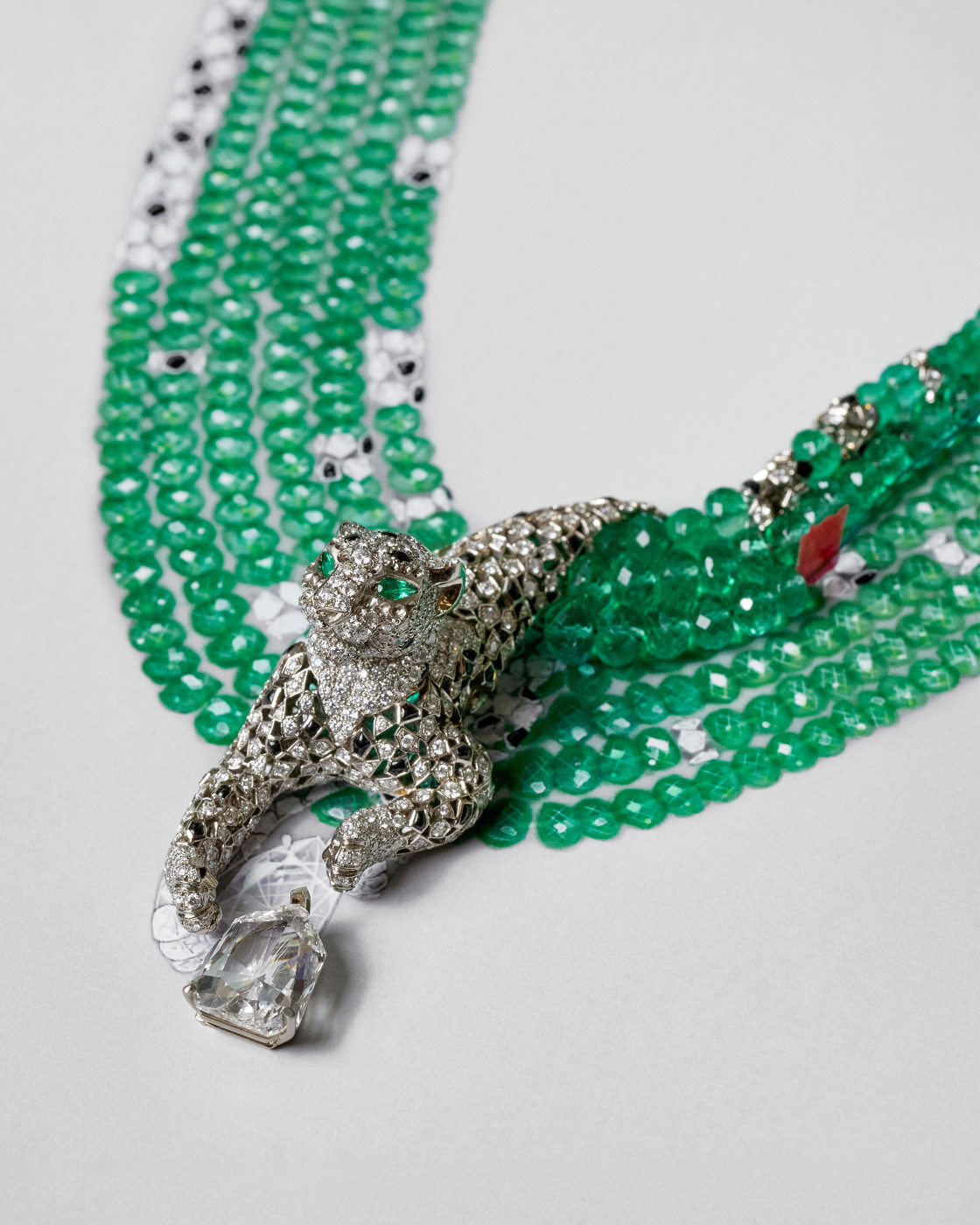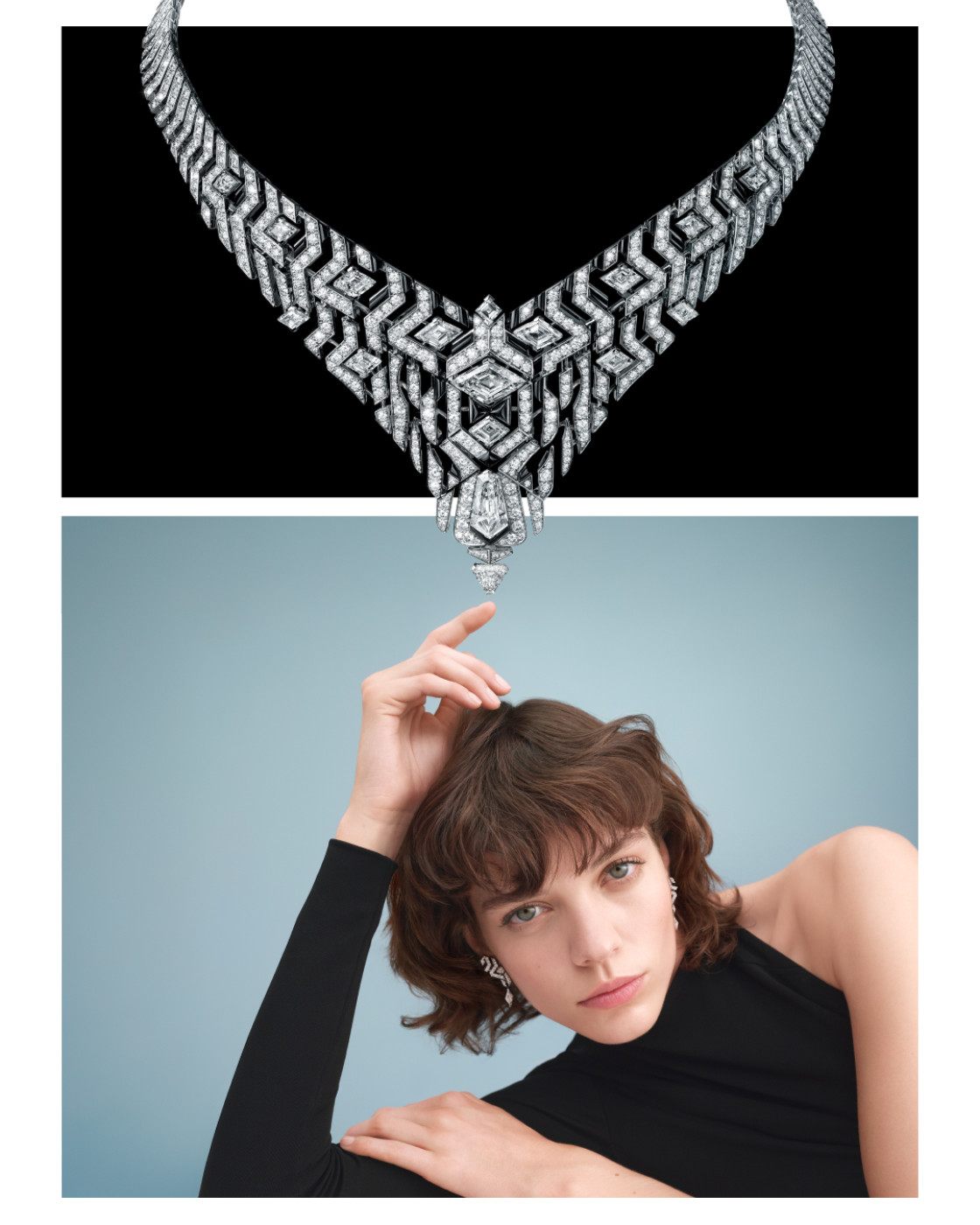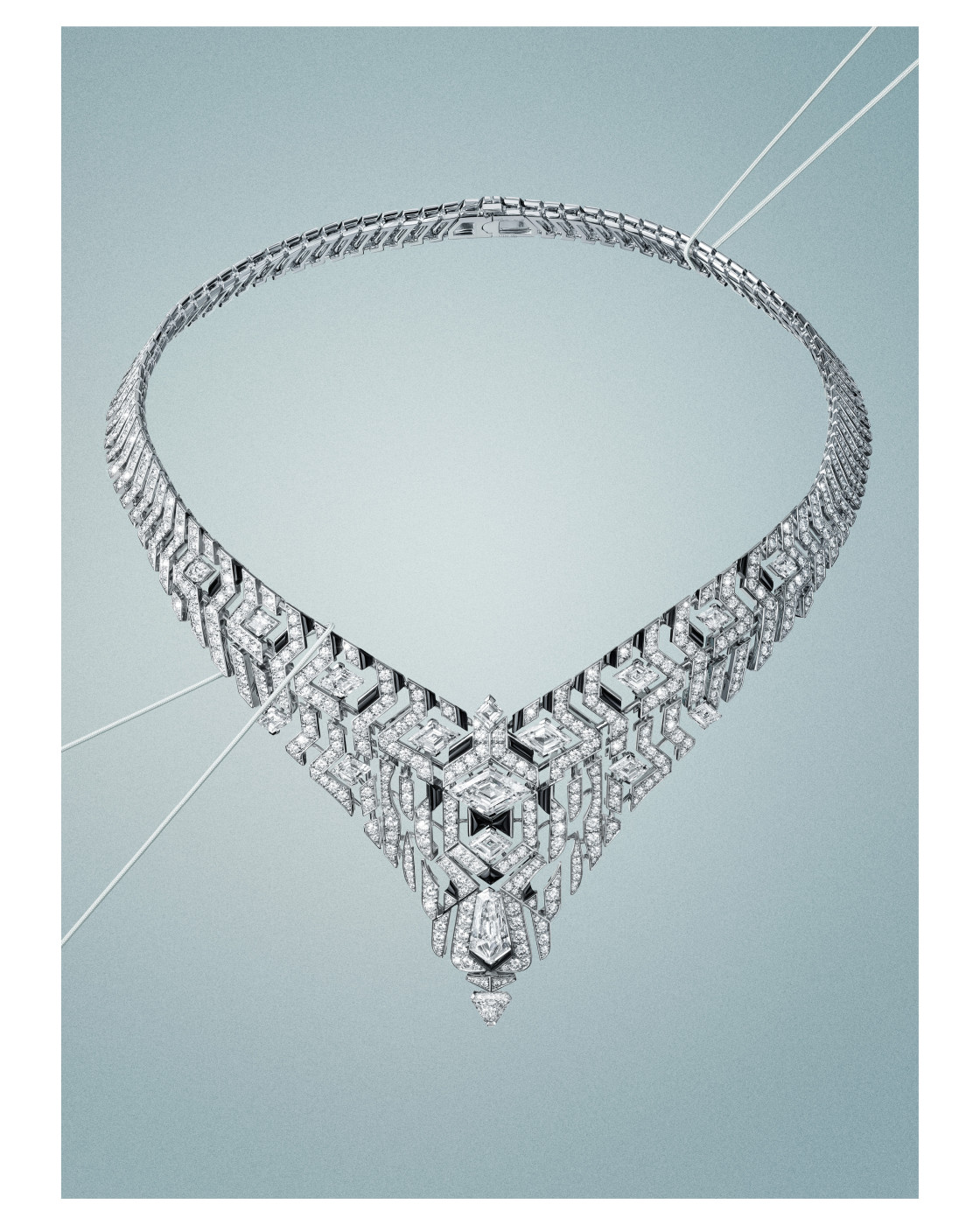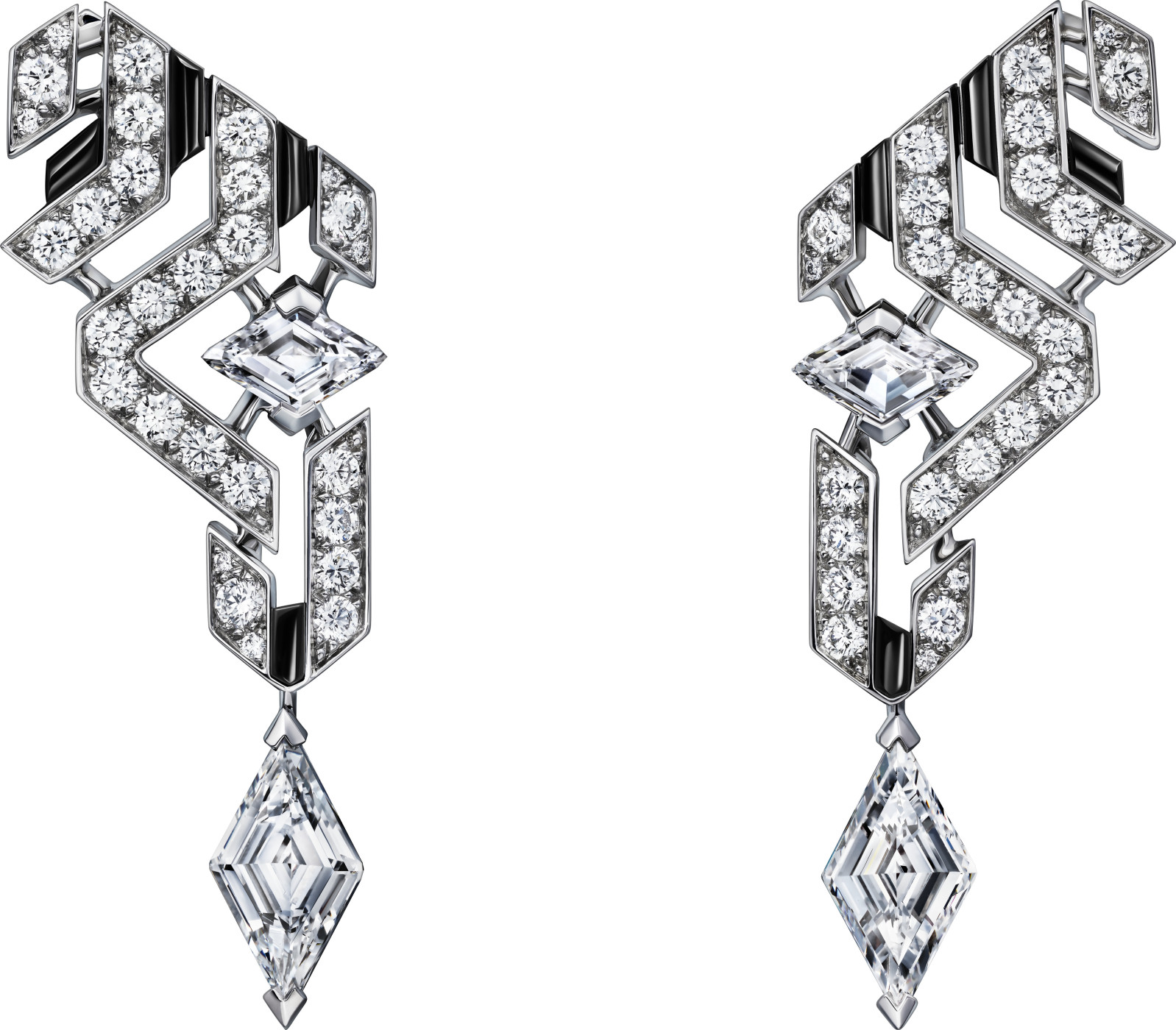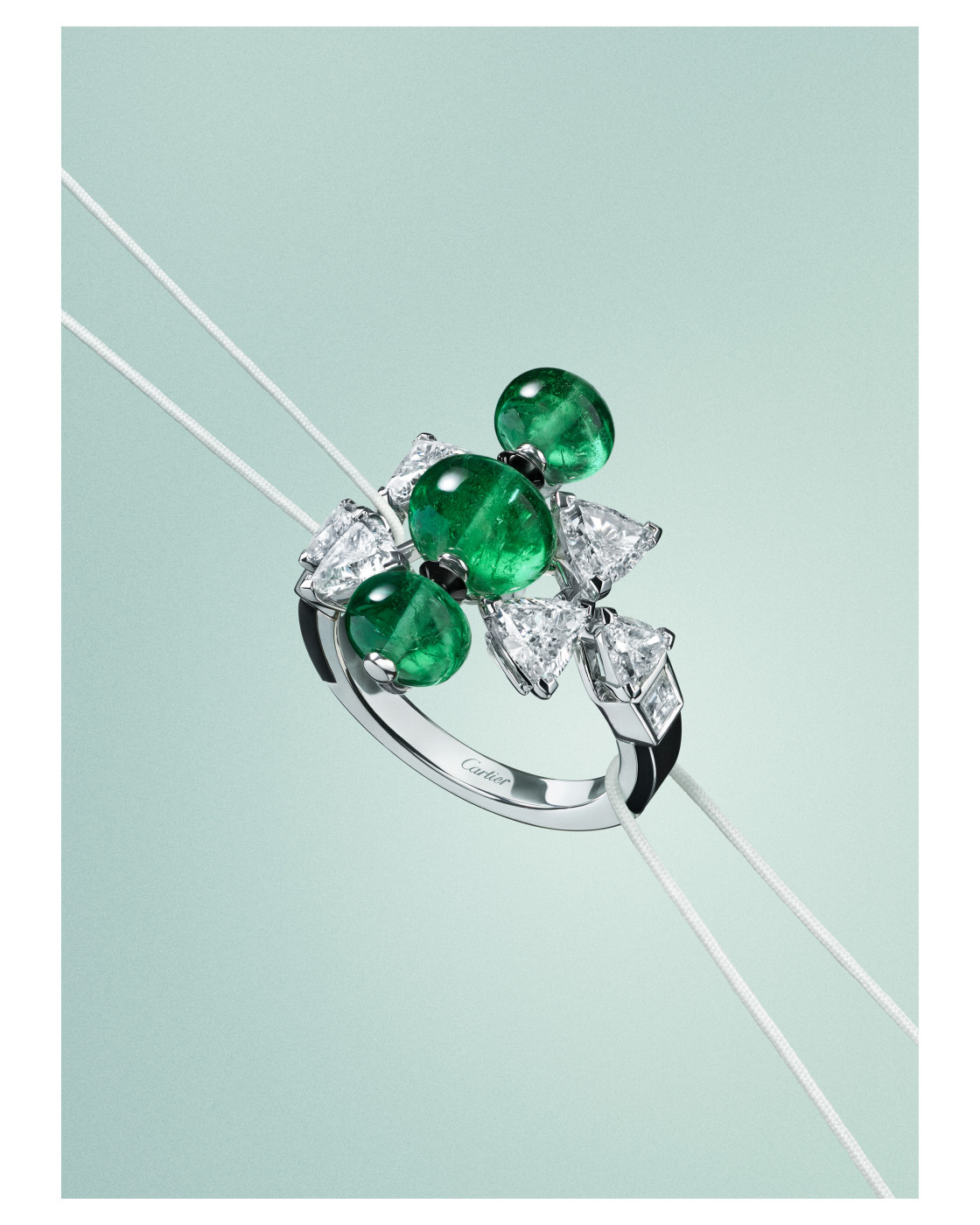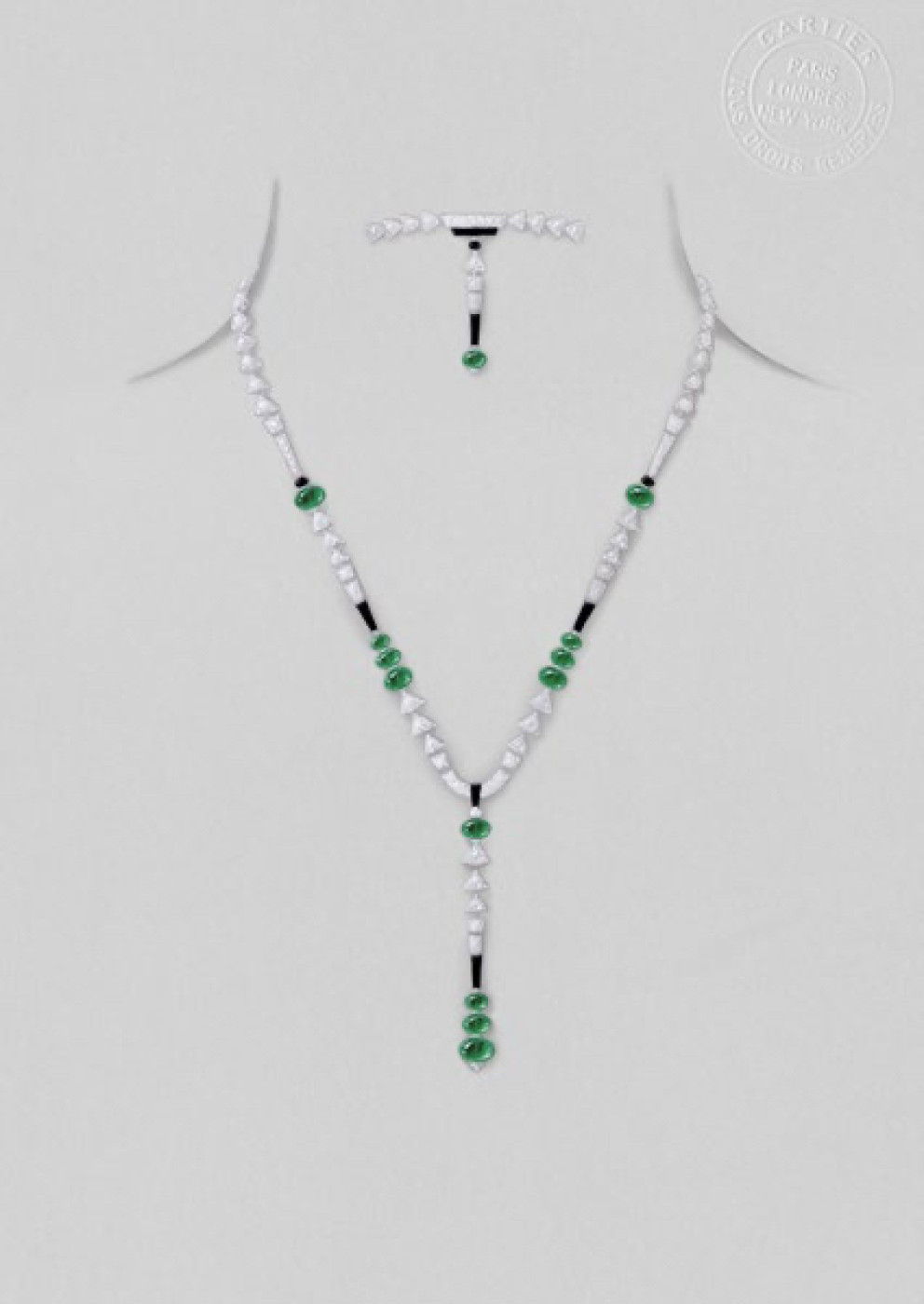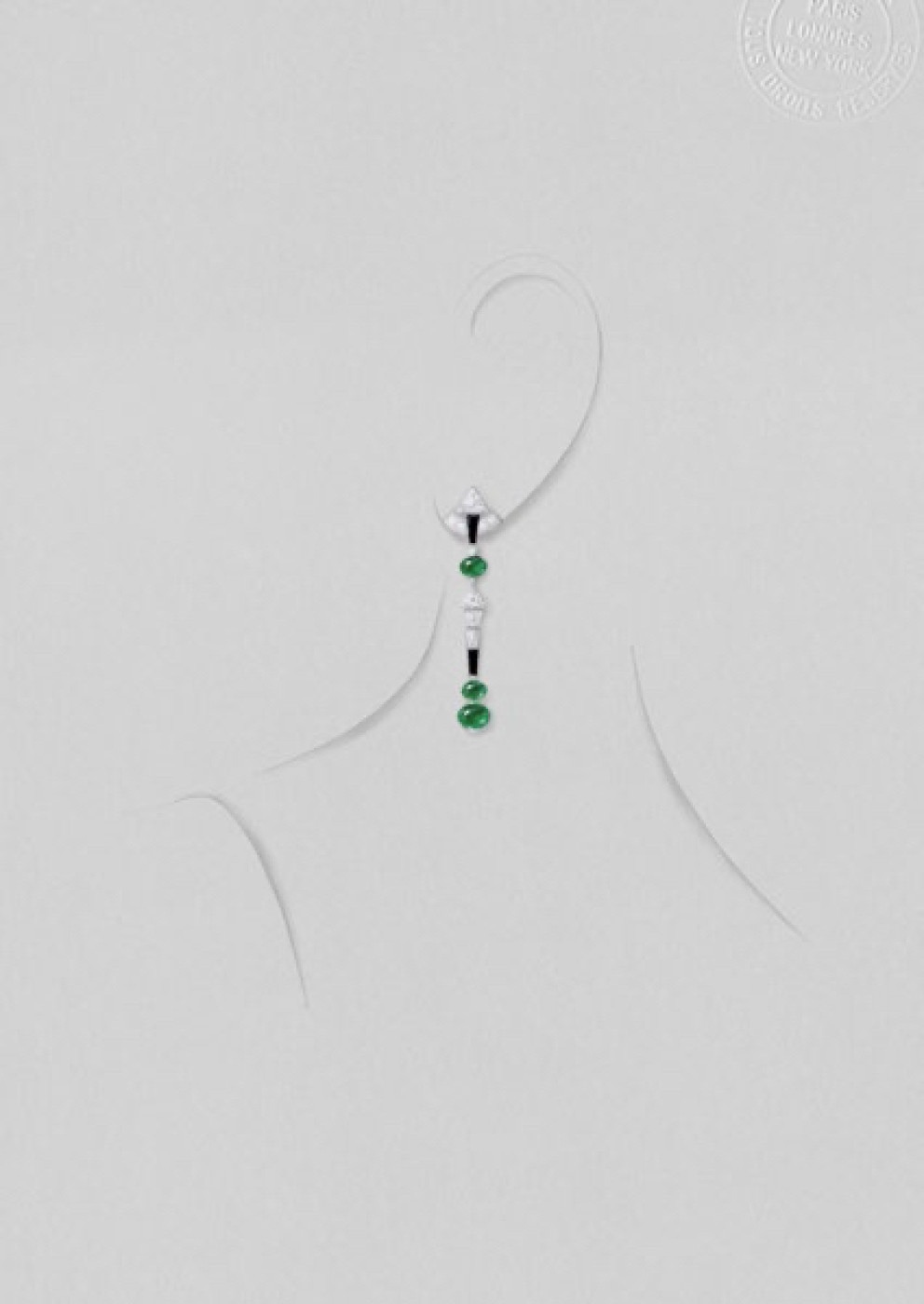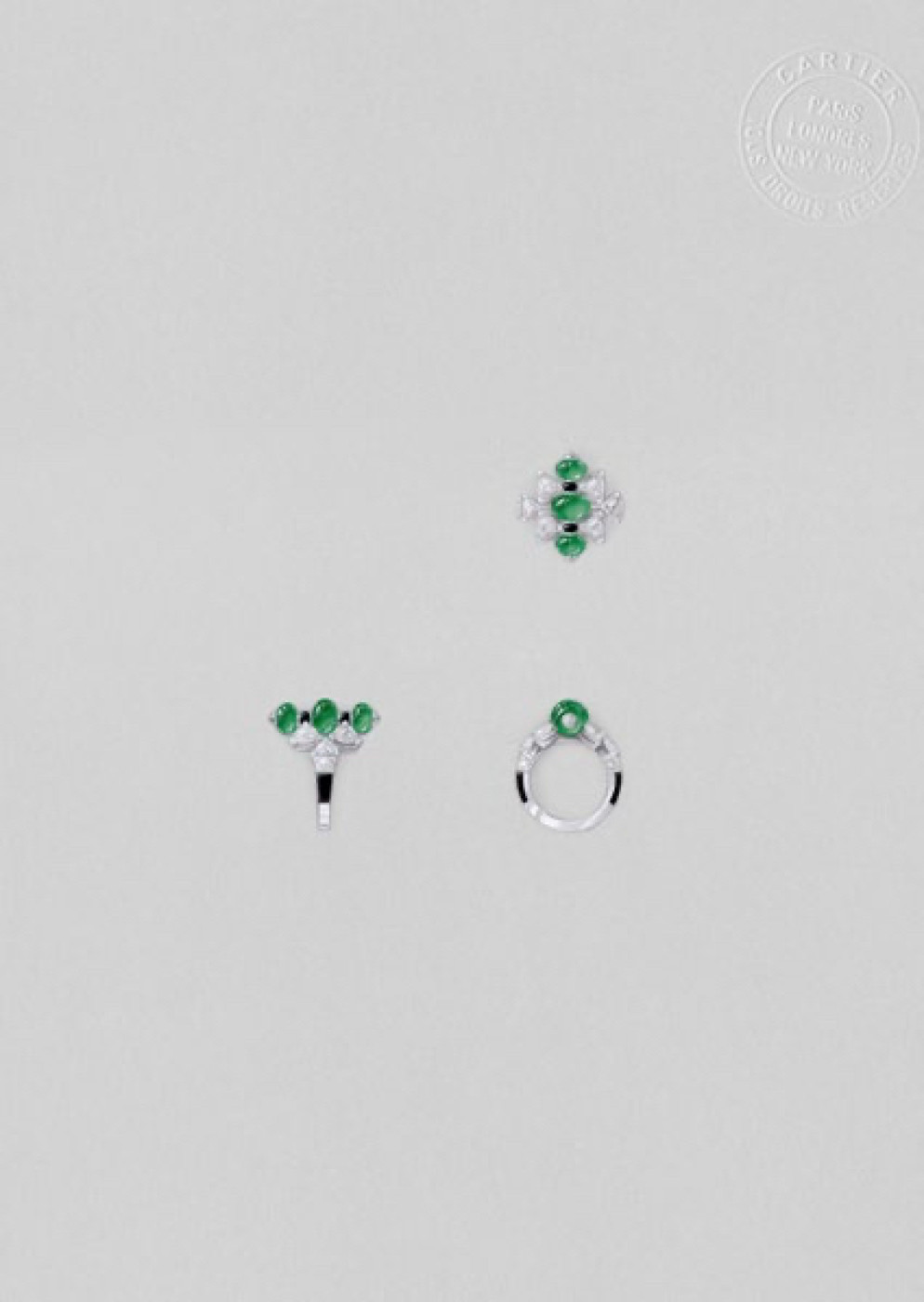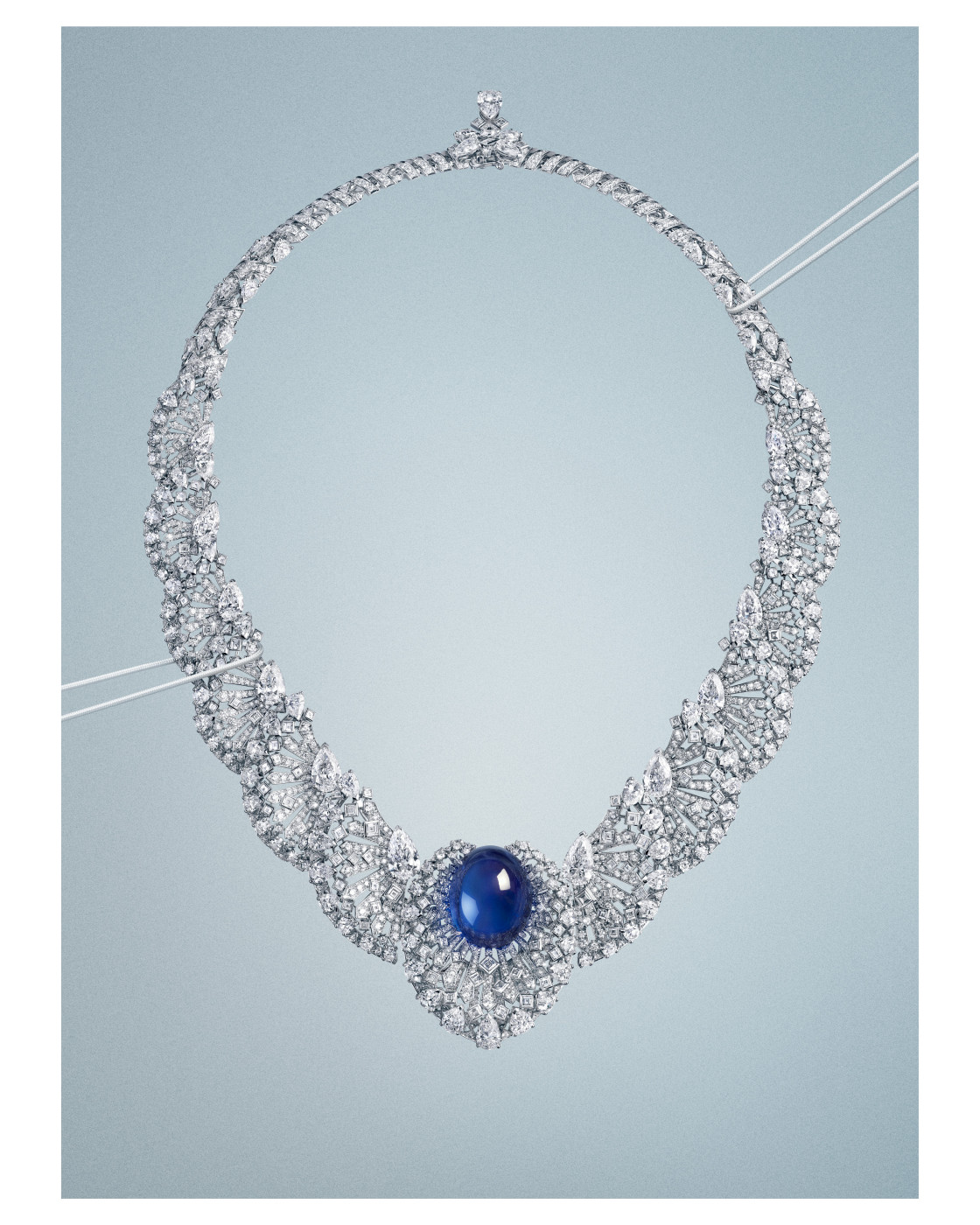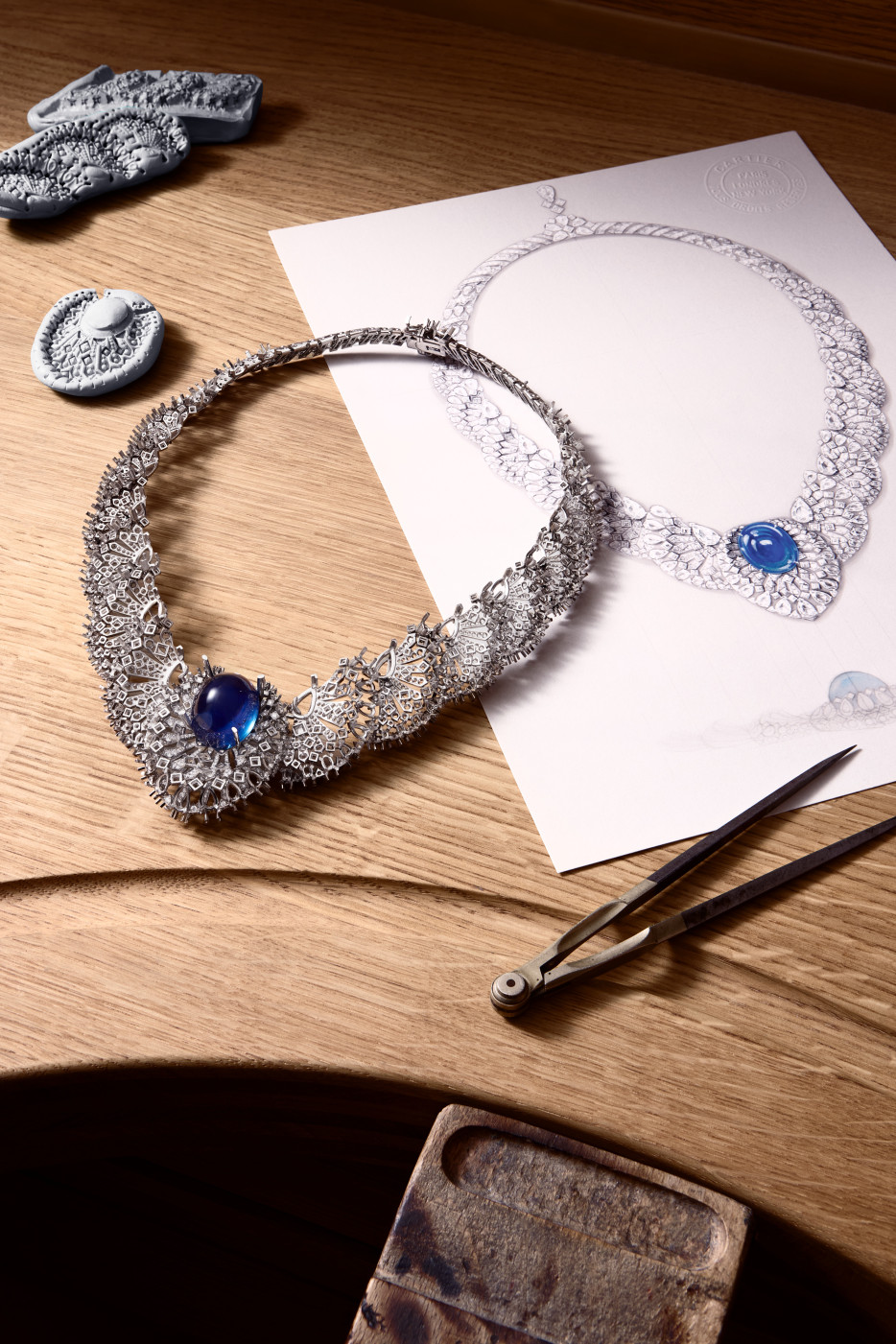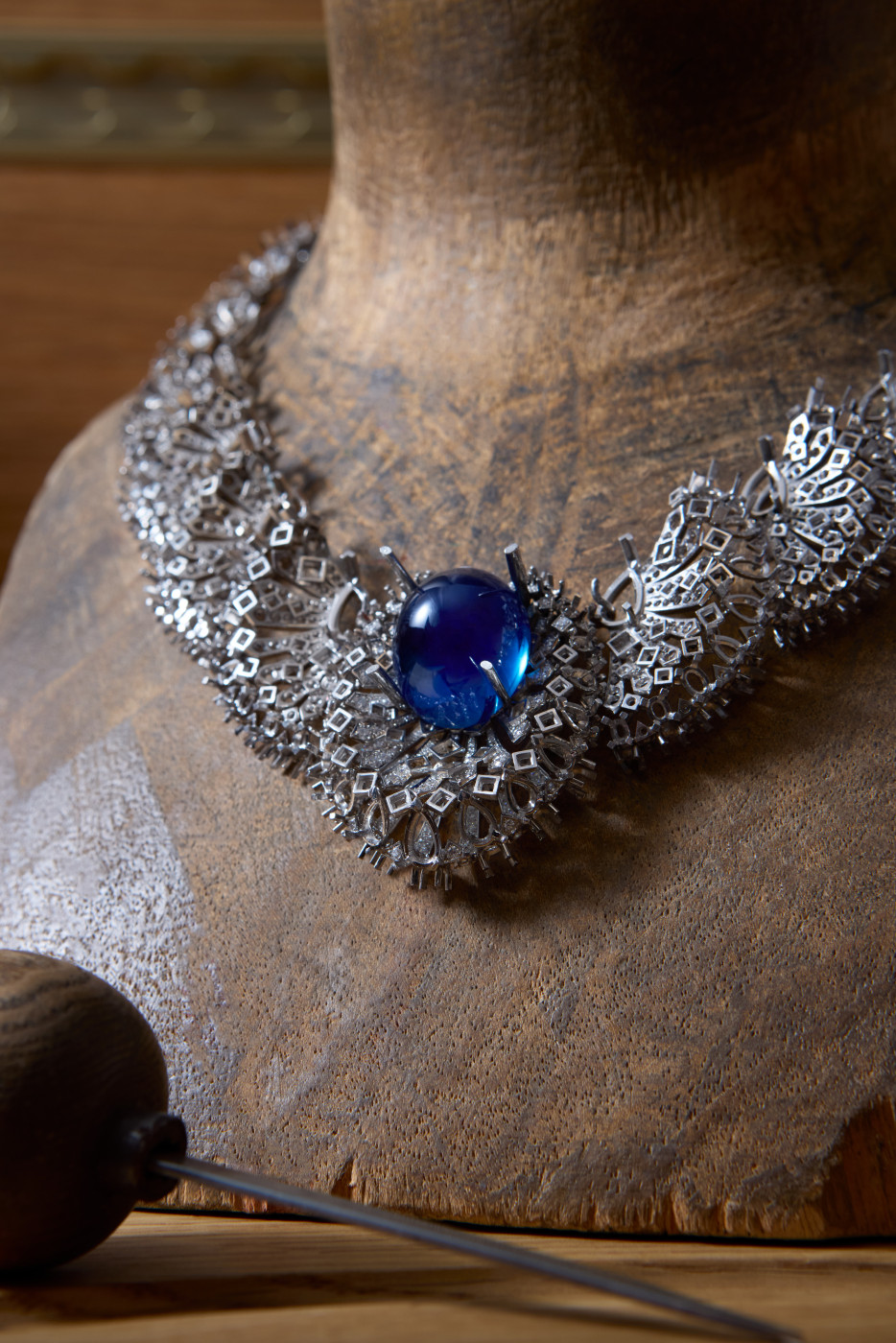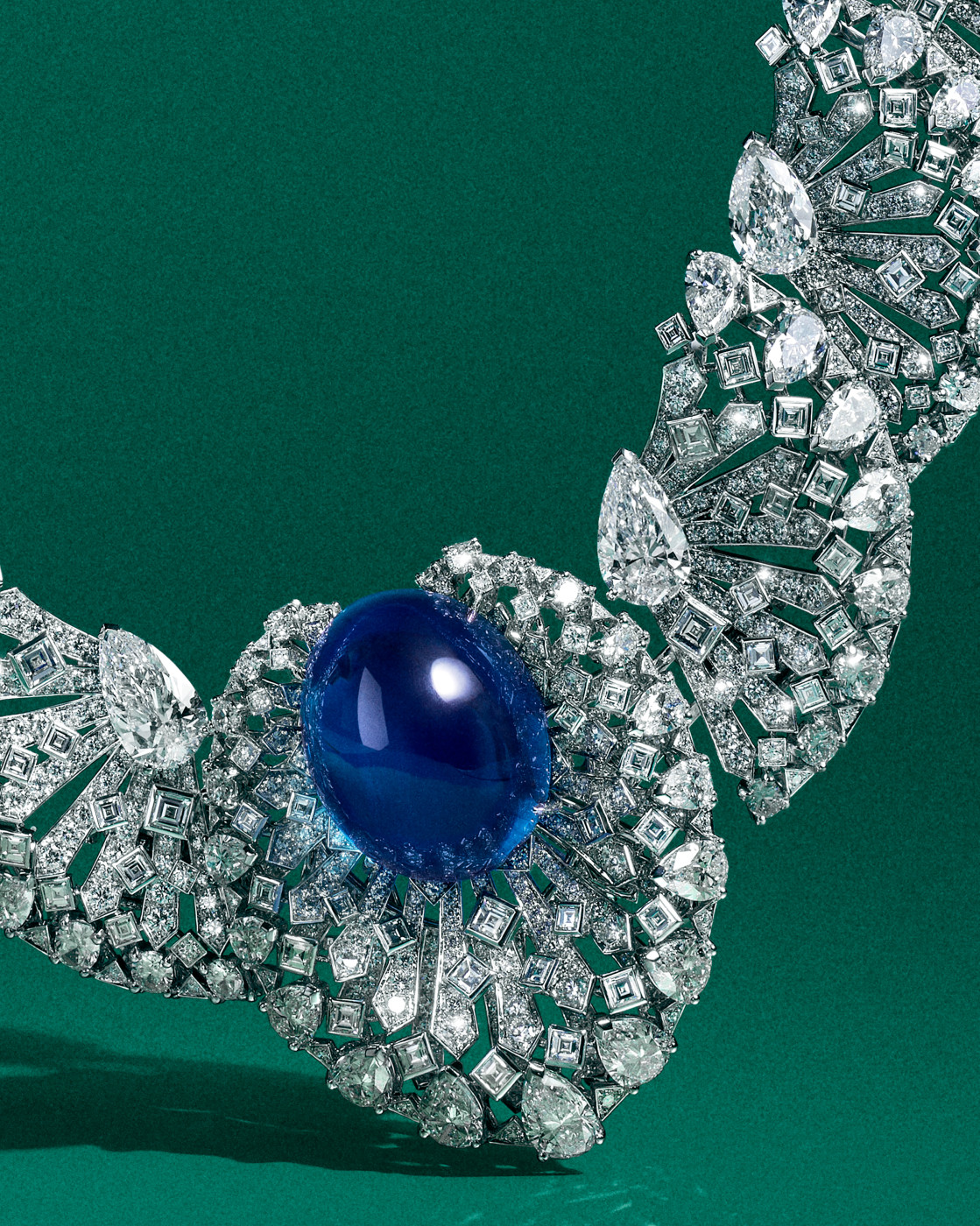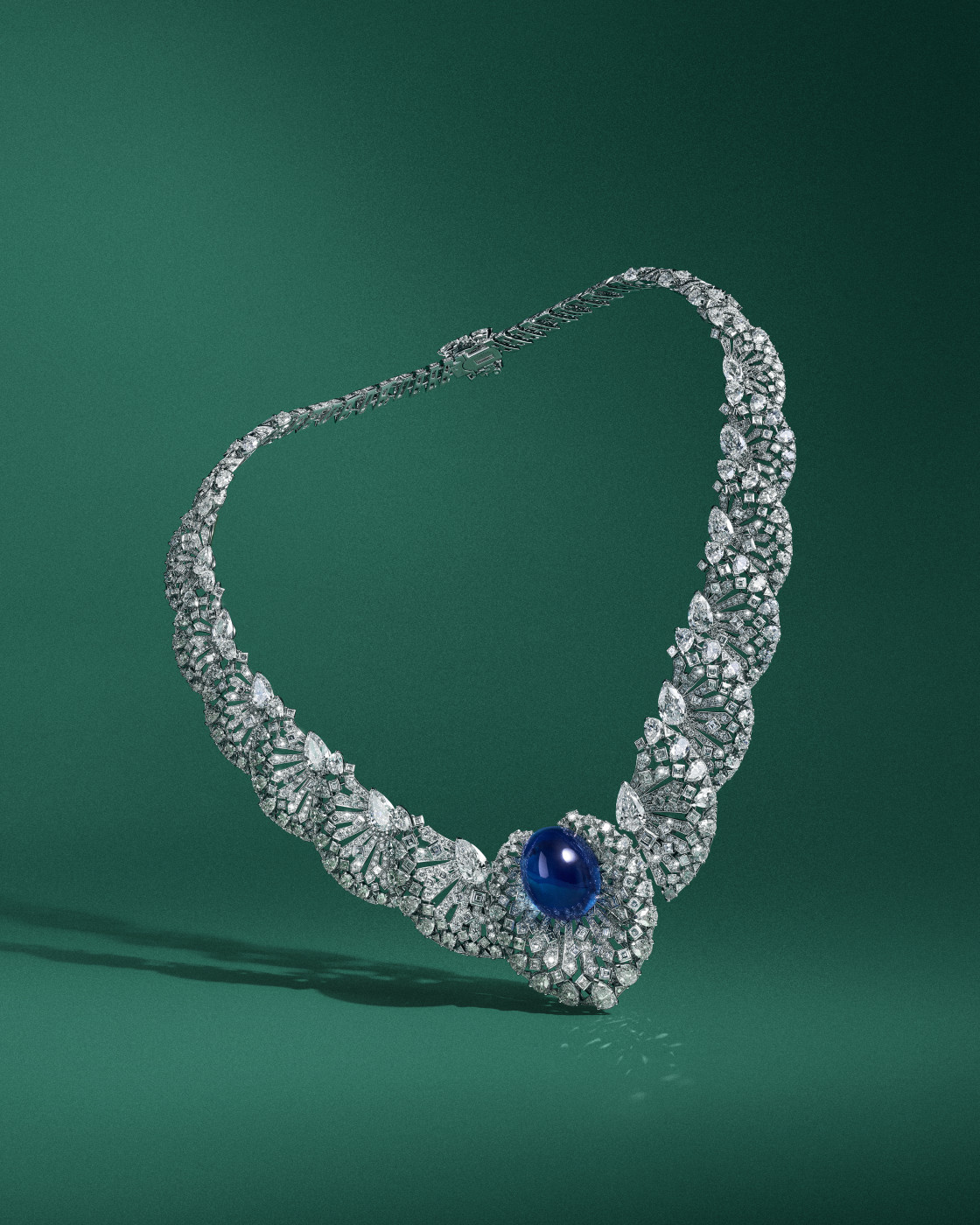
Cartier: Equilibrium equation
In the «En Équilibre» haute joaillerie collection, the renowned Parisian jewelry house, Maison Cartier, demonstrated its ability to balance serenity and drama.
To present their summer haute joaillerie collections, jewelry houses typically gravitate towards the sun, the sea, and other Mediterranean influences. However, this was not the case with Maison Cartier, which showcased its En Équilibre collection in Stockholm. Cartier’s creative director, Jacqueline Karachi, explains that the house’s central maxim –– "nothing in excess"–– and the constant pursuit of refined simplicity align with the Swedish concept of “lagom”, meaning "just the right amount," an expression of equilibrium in all aspects of life.
It is likely this philosophy of "nothing in excess" that led Cartier to limit its usual polychromatism to three colors: white (regular diamonds), green (emeralds), and black (onyx). These three colors –– and these three stones –– constitute the Cartier essentials.
Saturated colours were also present. One example is the Panthère Orbitale necklace, where the Cartier’s traditionally black-and-white panther (diamonds and onyx) with emerald eyes sits on a coral cabochon surrounded by amethyst beads, creating one of the most captivating color combinations of coral and lilac.
Another magnificent panther appears in the Panthère Dentelée necklace and this tells a completely different story, built around three main colors and three stones. The sculptural panther, adorned with diamonds, onyx, and lace stitch patterns, is held by emerald threads, as if swinging on a swing. Colombian emeralds are cut in the briolette style, turned into beads of varying sizes and weights and interspersed with diamonds. This contrast between the volume and weight of the panther and the flexible lightness of the emerald threads on which it is suspended appears dizzying, while maintaing the entire structure in perfect balance.
Another cat hides in the Tsagaan necklace, where instead of three, only two colors and two stones –– diamonds and onyx –– are used. The feline in question is a snow leopard, which is notoriously difficult to observe in the wild due to its snow-white color. This feature is captured in the necklace: the muzzle of this big cat at the center of the necklace is a trompe-l'œil, appearing and disappearing depending on the angle. This entire effect is based on the geometric shapes of kite-, lozenge-, and triangle-cut diamonds.
Speaking of the uncommon diamond cuts, special mention must be made of the Summae parure, which consists of a ring, earrings, and sautoir, one of the most minimalist in the collection. A rare troïdas diamond cut is used here. In this parure, unlike Panthère Dentelée, the beauty of the emblematic Cartier triad of "diamonds-emeralds-onyx" is embodied in its purest form, devoid of any figurativeness. The structure into which the precious stones are set is almost invisible, making the stones appear as if they are suspended in the air.
One of the most impressive stones in the entire collection, a Ceylon cabochon sapphire weighing 58.08 carats, is part of the Pavocelle necklace. As the name suggests, the necklace is dedicated to the peacock, and the stone is placed in the center, resembling a peacock feather. This exceptional sapphire and its base transform into a brooch, while the pear-shaped diamond on the clasp becomes a pendant.
Text: Elena Stafyeva
Courtecy: Cartier


